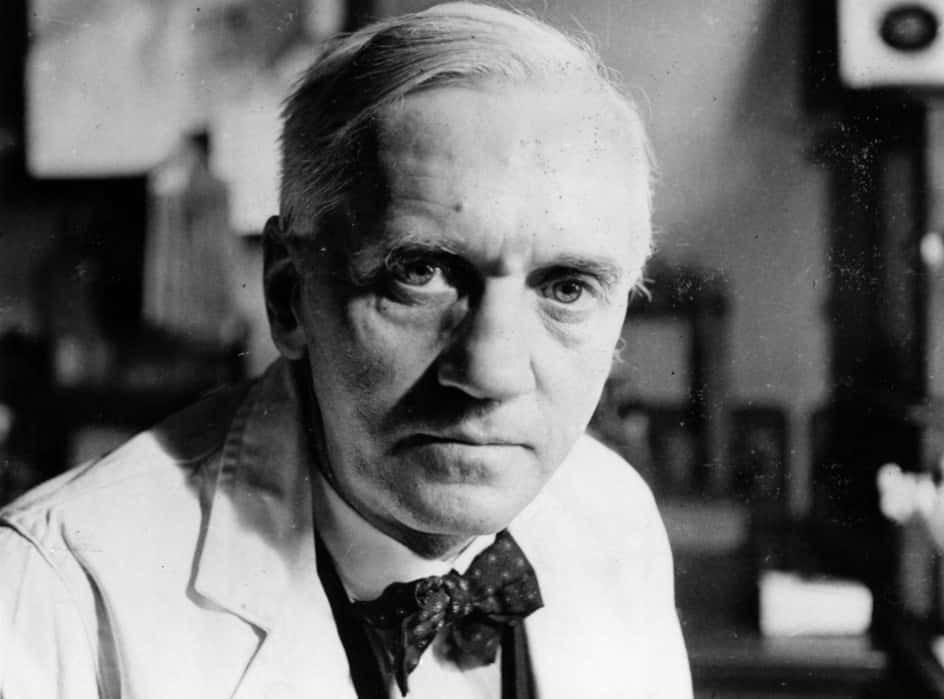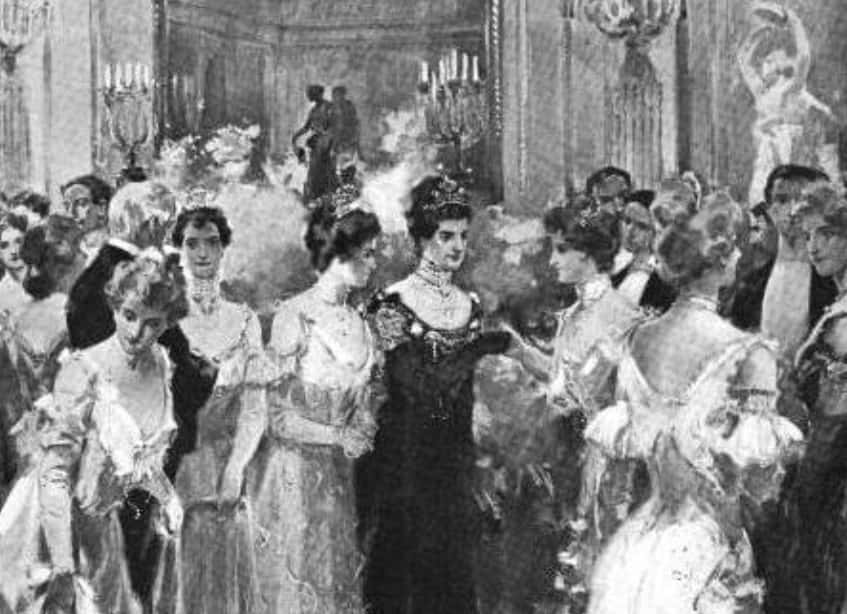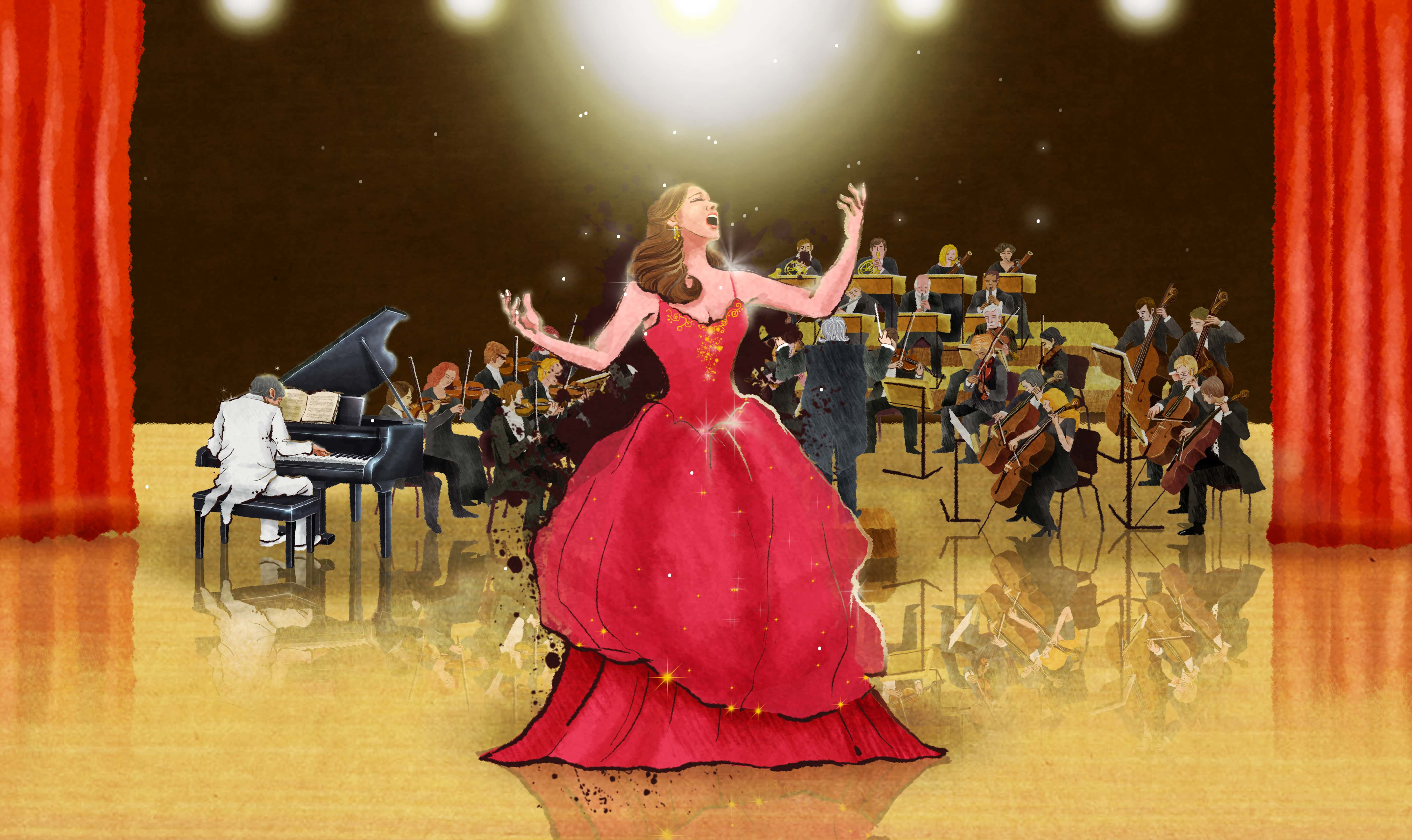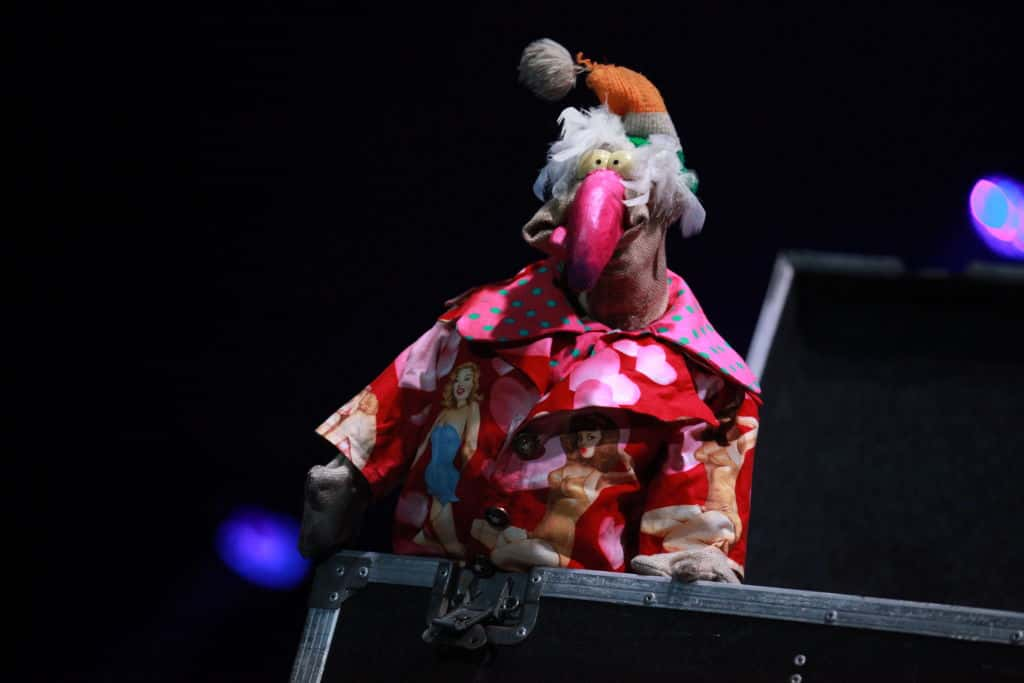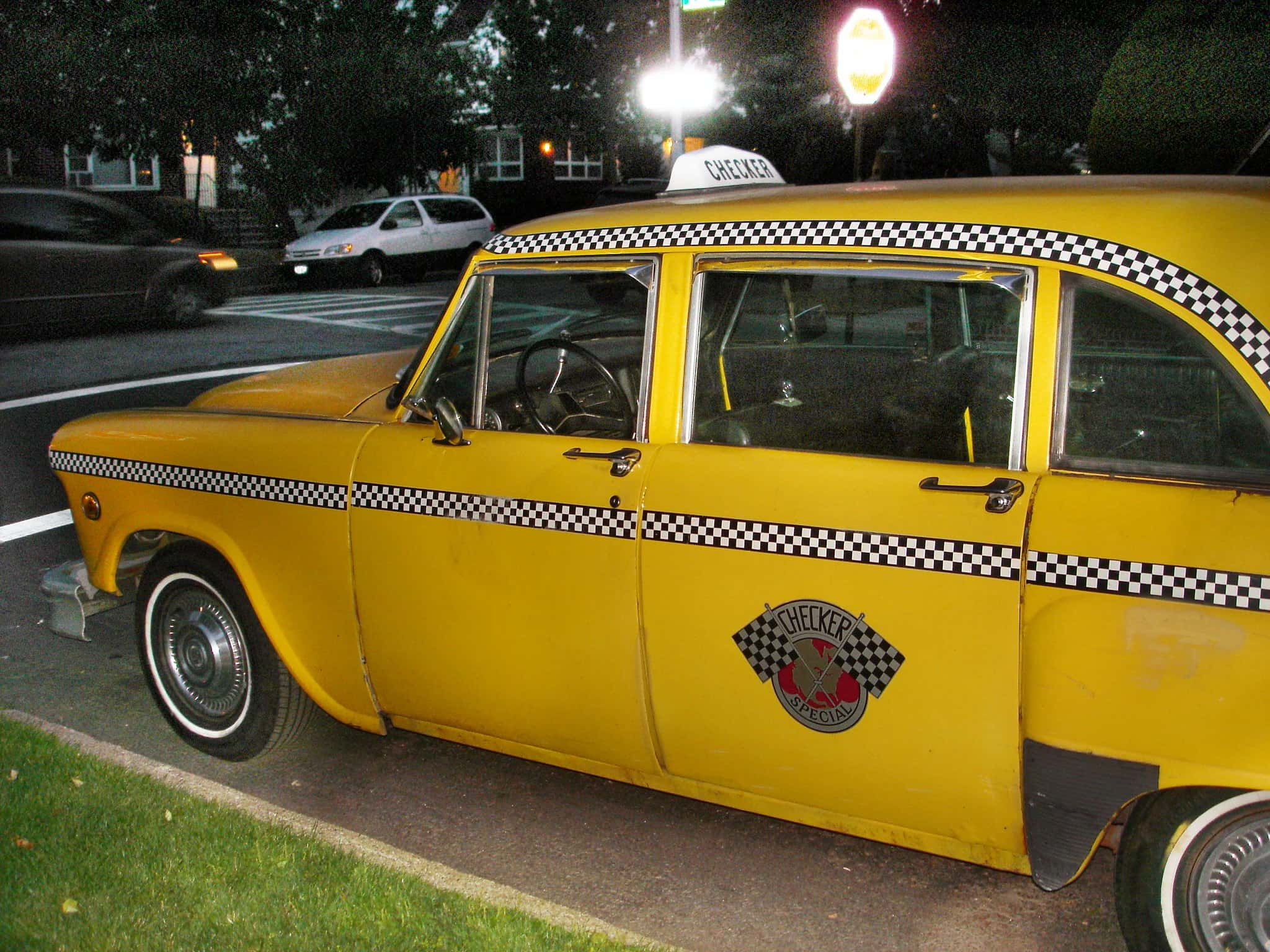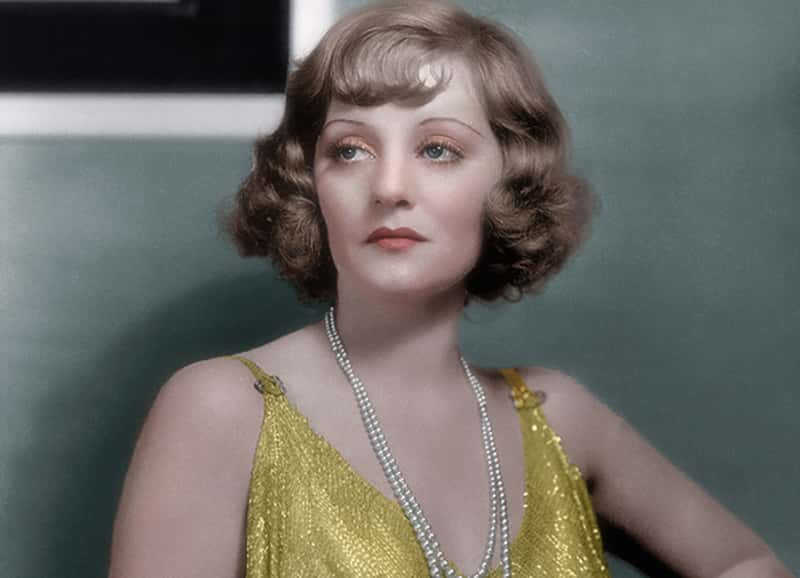Forget William Hung. Florence Foster Jenkins is the undisputed worst singer in the history of the world. But, quizzically, she was also one of the most adored—but whether or not she was in on the joke, we may never know.
1. She Was The “World’s Worst Singer”
Florence Foster Jenkins was never the likeliest candidate to take New York’s musical scene by storm. But, in due time, the Pennsylvania-born heiress became the toast of the town—for all the wrong reasons. The author Stephen Pile would give Jenkins the ignominious title of “the world’s worst opera singer”.
And it would prove to be a title well-earned.
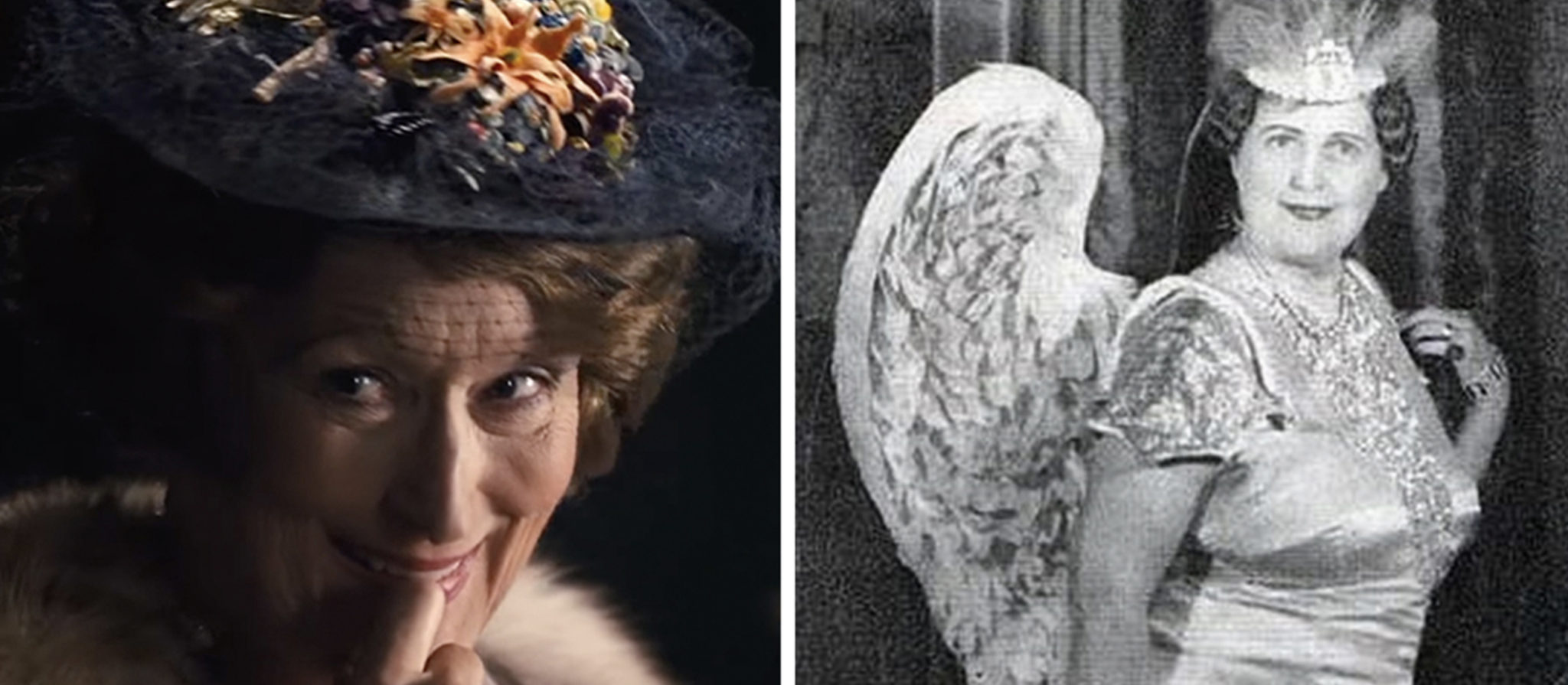
2. She Was A Piano Prodigy
Despite her infamously toneless and shrill performances later in life, Jenkins’ musical career actually got off to a great start. She started off as a child, playing the piano as “Little Miss Foster” during her family’s many society events. In fact, if she had only stuck with the piano, she might actually have had a respectable musical career. But she wanted to sing.
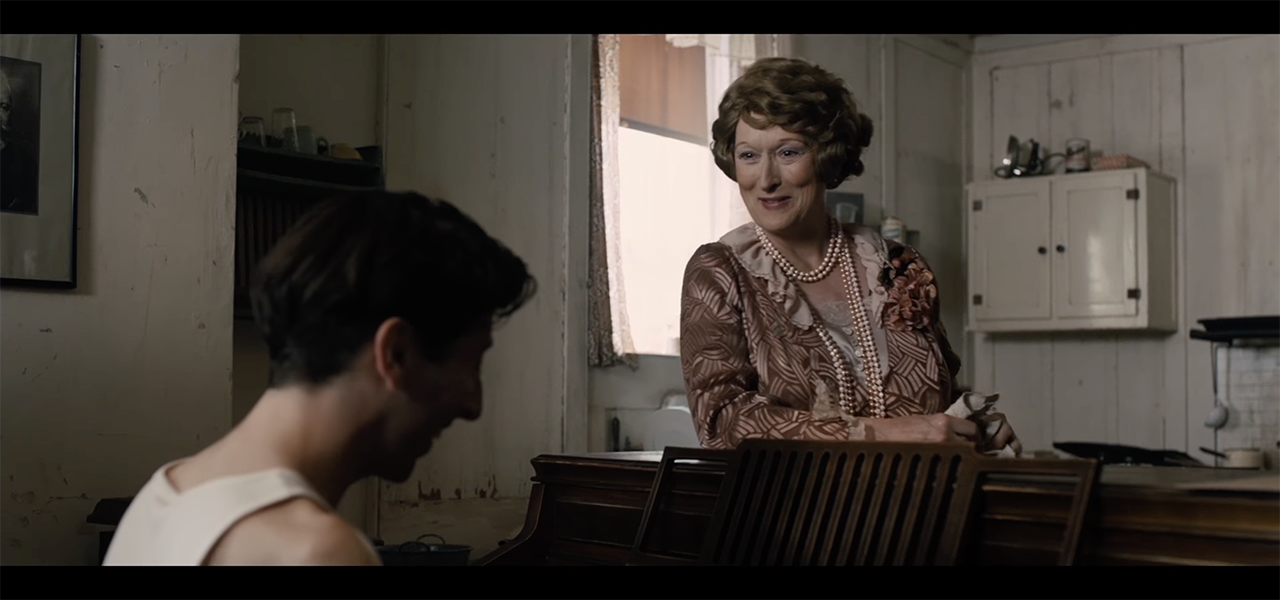 Florence Foster Jenkins, Paramount Studios
Florence Foster Jenkins, Paramount Studios
3. She Gave A Presidential Performance
Jenkins would eventually pack massive ballrooms and theater halls—including selling out Carnegie Hall for her swan song. But her first major concert appearance was no less impressive. As a child, Jenkins performed a piano recital at the White House during the Hayes administration. Sadly, it was all downhill from there.
4. She Spent Thousands On Sheet Music
With her early success as a pianist, Jenkins dreamt of a life on stage. Of course, she probably didn’t imagine it would be as the star of the longest-running gong show. To pursue her dreams, Jenkins spent thousands of dollars on sheet music and musical instruction. Unfortunately for her, she didn’t exactly have her family’s support.
Probably because they knew she couldn’t hold a tune in a bucket.
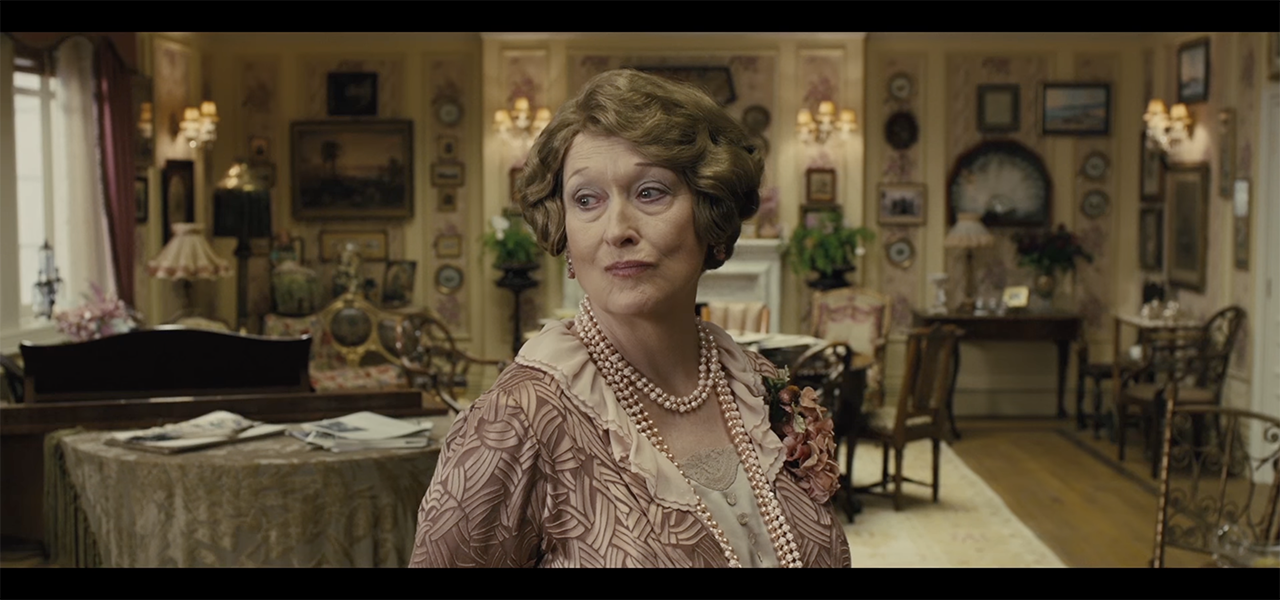 Florence Foster Jenkins, Paramount Studios
Florence Foster Jenkins, Paramount Studios
5. Her Father Made Her Give Up Music
Armed with her sheet music (and delusions of grandeur) Jenkins prepared herself to travel to Europe to finish her musical education. But she and her father weren’t exactly harmonious on the subject. Probably because he knew that his daughter was talentless, Jenkins’ father forbade her to go and refused to fund her musical aspirations any longer.
Their relationship only got worse from there. Much worse.
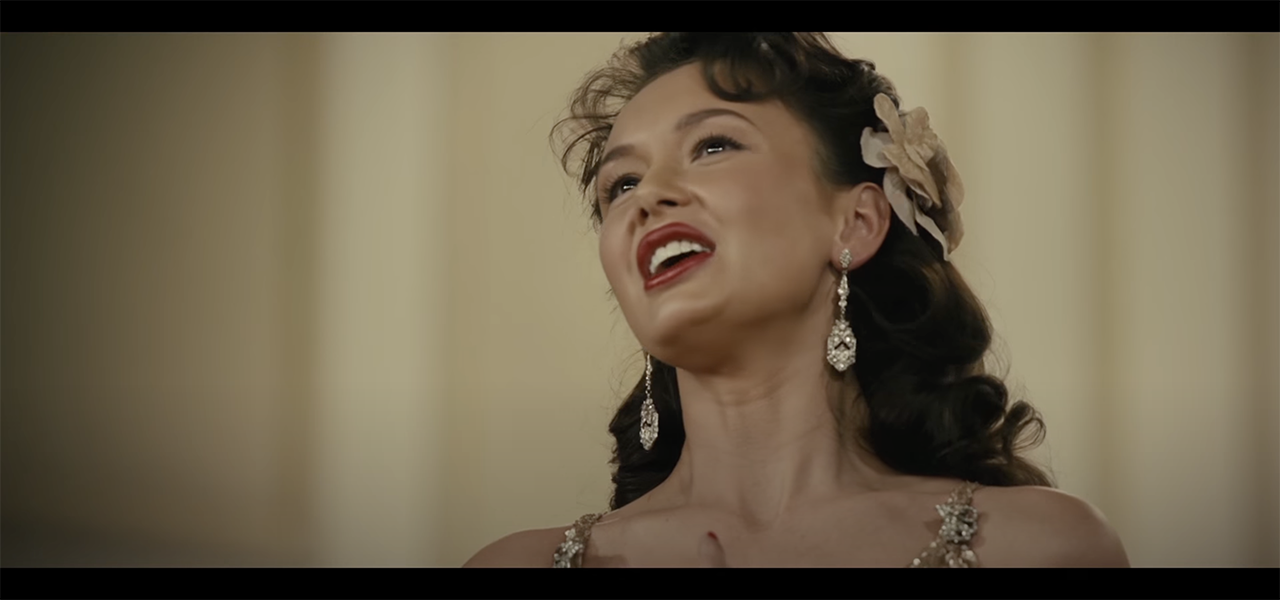 Florence Foster Jenkins, Paramount Studios
Florence Foster Jenkins, Paramount Studios
6. She Lost Her Innocence
In the weeks leading up to Jenkins’ 15th birthday, her life took a tragic turn. Or two. Rather unexpectedly, her younger sister and only sibling passed on. As traumatic an experience as that was, she was about to suffer an even more devastating loss. Specifically, the loss of her innocence and youthful health and beauty.
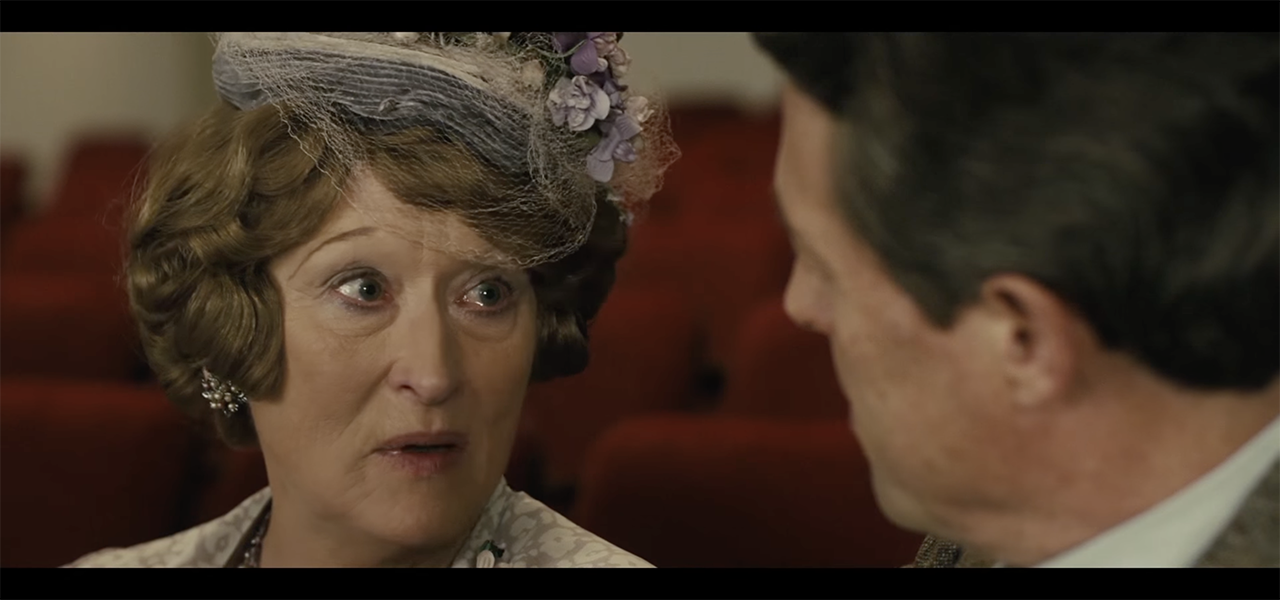 Florence Foster Jenkins, Paramount Studios
Florence Foster Jenkins, Paramount Studios
7. She Married An Older Man
Ten days after her younger sister’s funeral, Jenkins found a way to escape her father’s clutches. At just 15, she married Dr. Francis Thornton Jenkins. The good doctor was 16 years older than her, and it’s fair to say that he carried some baggage into their marriage. Sadly, Jenkins would end up carrying that baggage for the rest of her long life.
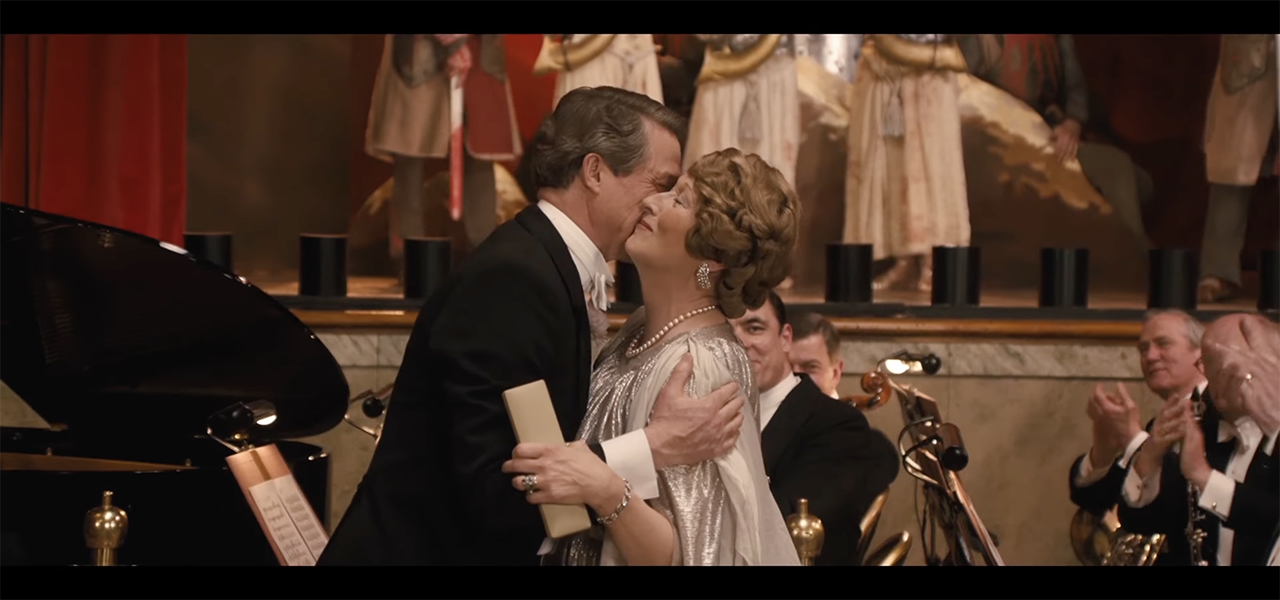 Florence Foster Jenkins, Paramount Studios
Florence Foster Jenkins, Paramount Studios
8. She Had A Terrible Wedding Night
If Jenkins thought that her new marriage would free her to pursue her musical career, she was sorely mistaken. Much like her father, Jenkins’ new husband didn’t support her musical ambitions. But a lack of spousal support would soon be the least of her marital worries. In fact, her marital concerns started on her wedding night.
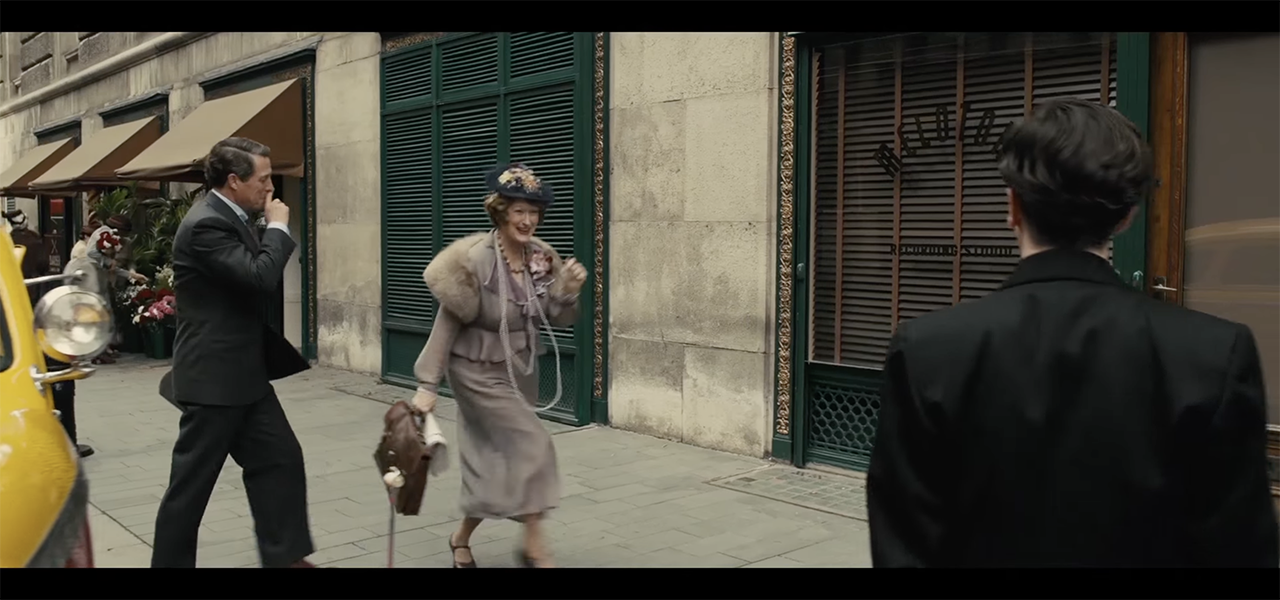 Florence Foster Jenkins, Paramount Studios
Florence Foster Jenkins, Paramount Studios
9. Her Husband Gave Her A Terminal Disease
While Jenkins’ marriage to the “good” doctor was perfectly legal by the standards of the time, it wasn’t exactly blissful. According to Jenkins herself, the marriage was ruined the night it began. Tragically, her new husband gave her syphilis on their wedding night, during what was presumably her first-ever intimate experience.
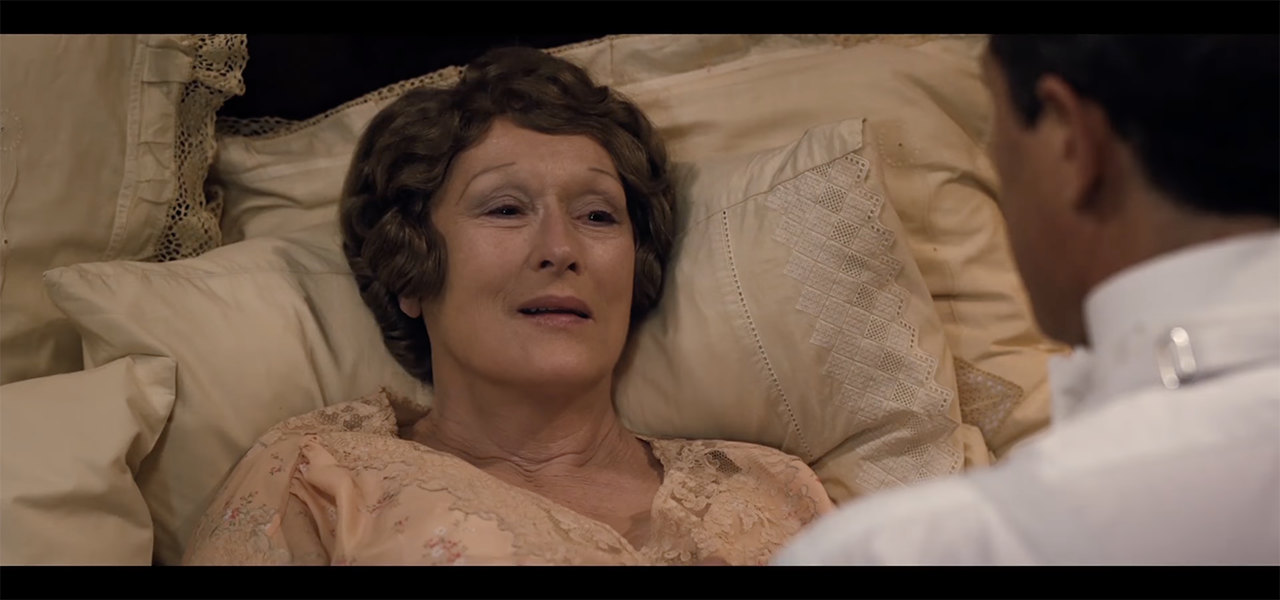 Florence Foster Jenkins, Paramount Studios
Florence Foster Jenkins, Paramount Studios
10. She Was Mercurial
Unfortunately for Jenkins, at the time that she contracted syphilis, antibiotics hadn’t yet been discovered. So, instead of penicillin to cure her infection, Jenkins took what modern doctors would consider to be poison. Jenkins’ treatment included taking devastating amounts of mercury and arsenic. Sadly, the cure was almost as bad as the disease.
11. She Was Bald
Losing her innocence to the terrible disease of syphilis was bad enough, but the effects of her mercury and arsenic “medicine” added insult to her injury. While the potent substances didn’t cure her syphilis, they did, tragically, take something else away from her. Namely, her luscious locks. Because of her prolonged use of mercury, Jenkins was bald most of her life.
But that didn’t stop her from wanting to shine.
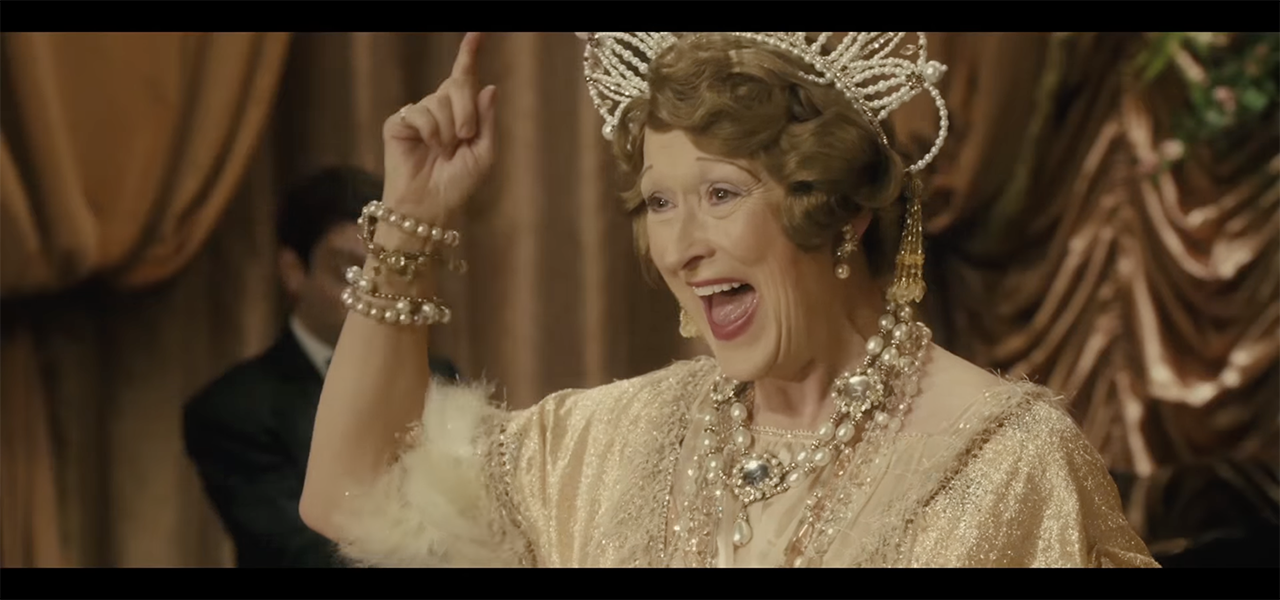 Florence Foster Jenkins, Paramount Studios
Florence Foster Jenkins, Paramount Studios
12. She Got Her Hair Done
No diva (and believe us, Jenkins was a diva with a capital “D”) could ever appear in public without a full head of hair. Of course, because of her use of mercury, she didn’t have any hair—far less a full head of it. She did, however, have money and a keen eye for wigs. So, to cover up her baldness, Jenkins wore elaborate wigs for the majority of her life.
13. She Might Have Had Tinnitus
An early syphilis infection ruined Jenkins’ love life and claimed her luscious locks. It might also have been the cause of her lack of vocal talent. Some historians suggest that Jenkins’ prolonged use of mercury might have given her tinnitus, impacting her hearing and, subsequently, her ability to match pitch and tone.
In all likelihood, however, she was probably born with tin ears. And a particularly shrill voice.
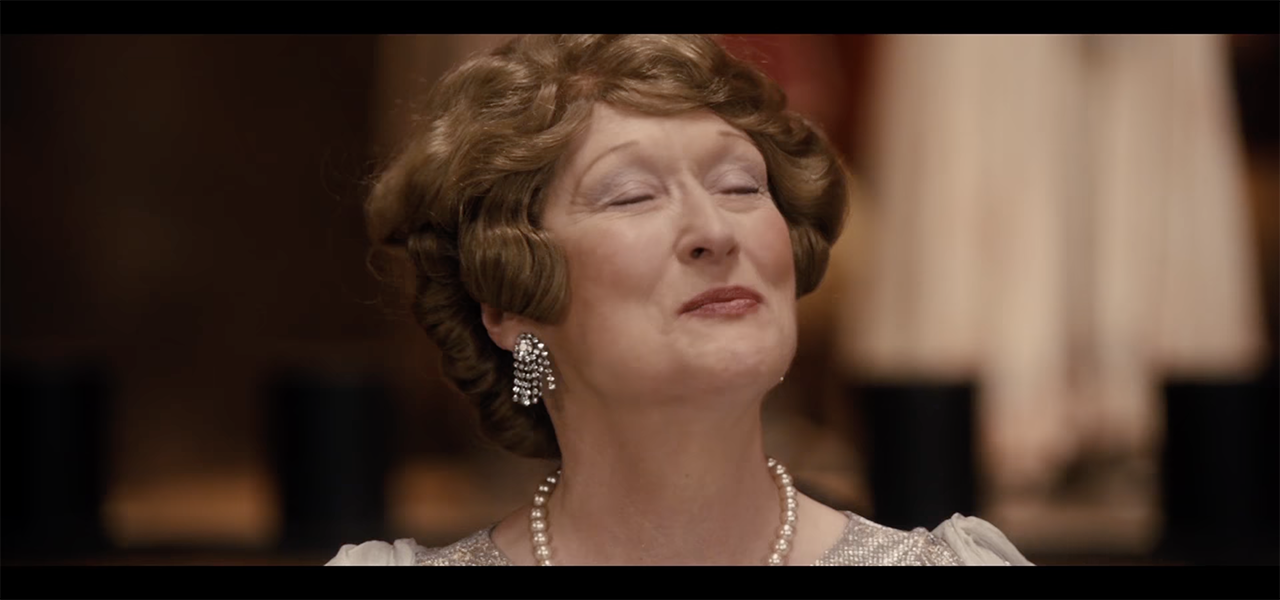 Florence Foster Jenkins, Paramount Studios
Florence Foster Jenkins, Paramount Studios
14. She Separated Herself From Her Trauma
Given her bad luck in love, no one would have blamed Jenkins for wanting to crawl into a hole and disappear. But she was never one to dwell on the negatives in life. To her credit, Jenkins dusted herself off and, less than one year into their marriage, separated from her husband. However, she likely remained married to him until 1906.
But she wouldn’t be rid of him (or his marital “gift”) for a long, long time.
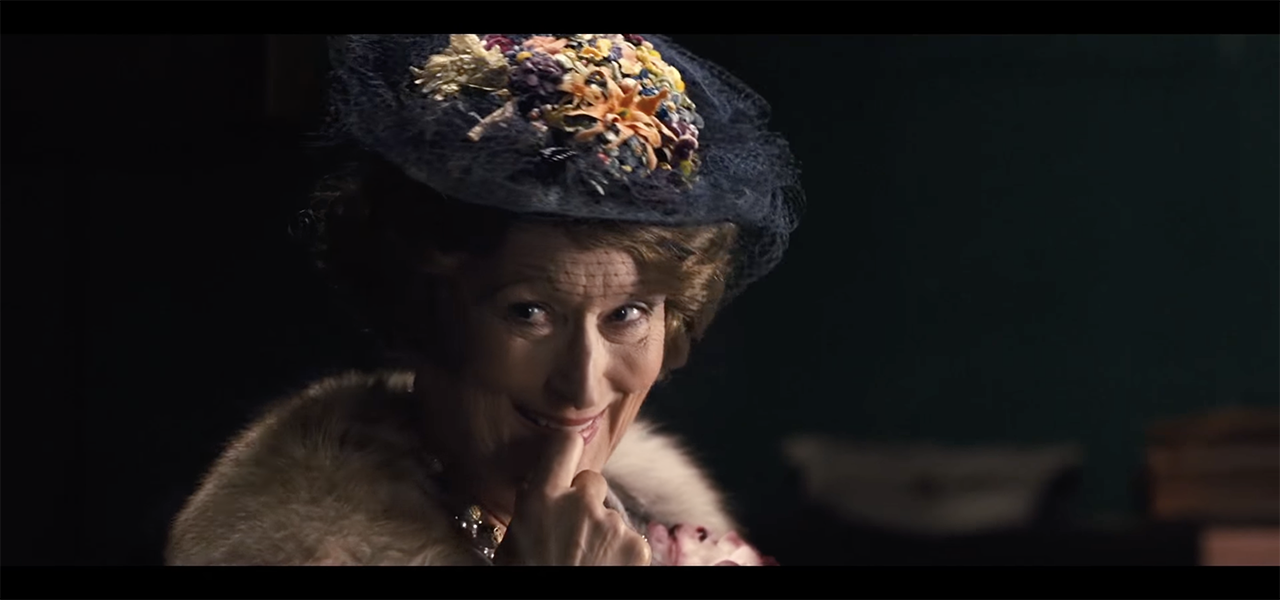 Florence Foster Jenkins, Paramount Studios
Florence Foster Jenkins, Paramount Studios
15. She Scraped By On Her Own
Once she was free of her husband and overbearing father, Jenkins was free to pursue her musical aspirations. Even if she was balding and talentless. Jenkins restarted her career as a pianist, but an unspecified arm injury waylaid her aspirations once again. Still undeterred, she managed to scrape a living together as a piano instructor in Philadelphia.
But the glittering spotlight was calling her name.
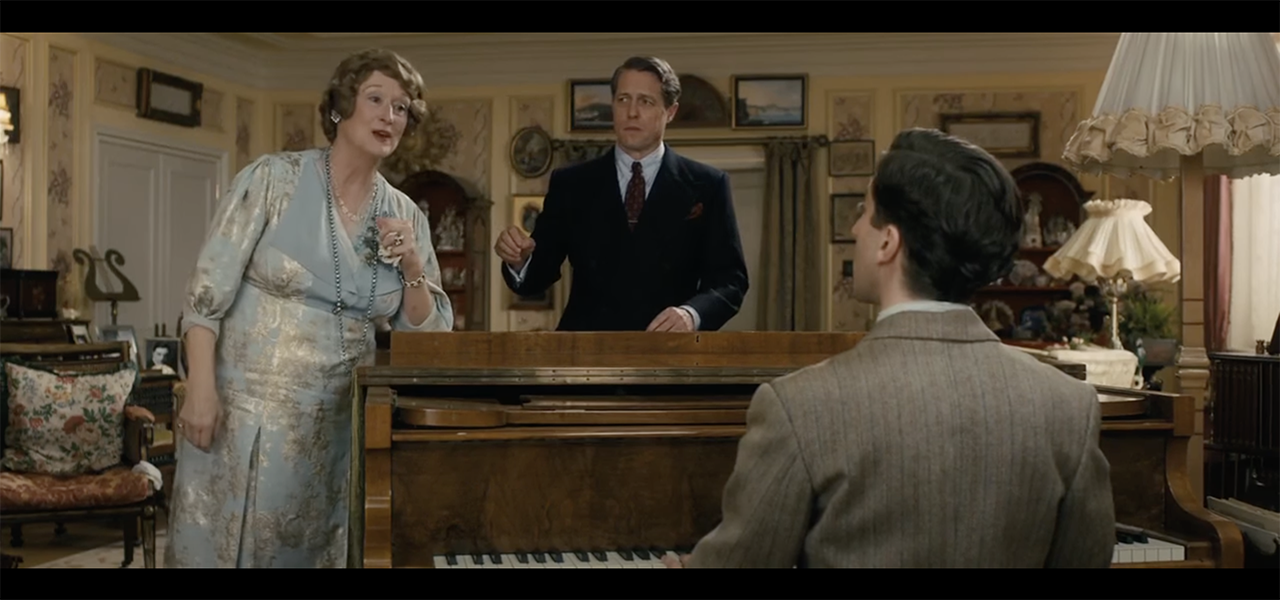 Florence Foster Jenkins, Paramount Studios
Florence Foster Jenkins, Paramount Studios
20. She Met Her Biggest Fan
After some bad breaks, Jenkins’ luck finally changed for the better when, in her early 40s, she met the only man who believed in her musical ambitions. The tone-deaf heiress met the dashing British actor St. Clair Bayfield. Despite what everyone else believed, Bayfield knew that Jenkins was a star and he agreed to be her manager.
It was a match made in heaven.
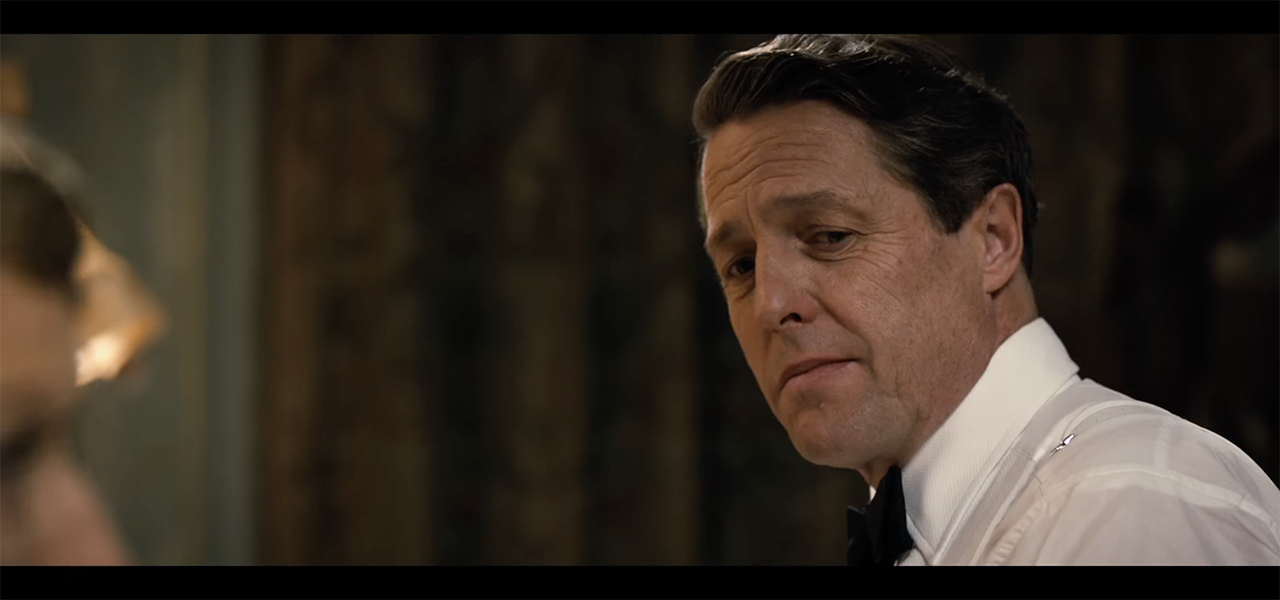 Florence Foster Jenkins, Paramount Studios
Florence Foster Jenkins, Paramount Studios
21. She Saved Him From Poverty
For Jenkins, Bayfield seemed like a godsend. And, for Bayfield, Jenkins must have seemed like a godsend as well. When he first arrived in the United States, he had been “abandoned[...]to penury” when his impresario dropped his acting troupe. For years, the English actor with a “fine voice and physical presence” had struggled to make his way on Broadway.
He was finally out of money and out of time—until he met the shrieking Florence Foster Jenkins.
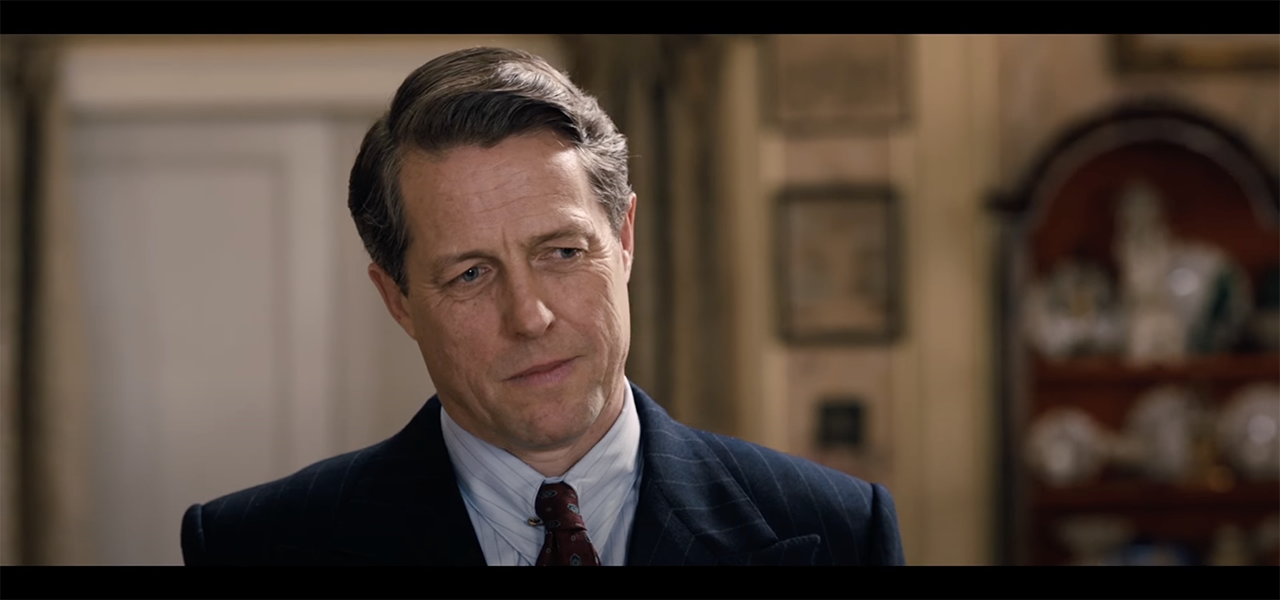 Florence Foster Jenkins, Paramount Studios
Florence Foster Jenkins, Paramount Studios
22. She Found A New “Husband”
The relationship between Jenkins and Bayfield was...complicated, to say the least. Despite the fact that Bayfield was nearly ten years her junior and that she was still technically married, Jenkins and Bayfield sparked up a romance. But their “cohabitation” or common-law arrangement was anything but ordinary. You might say that they were friends without benefits.
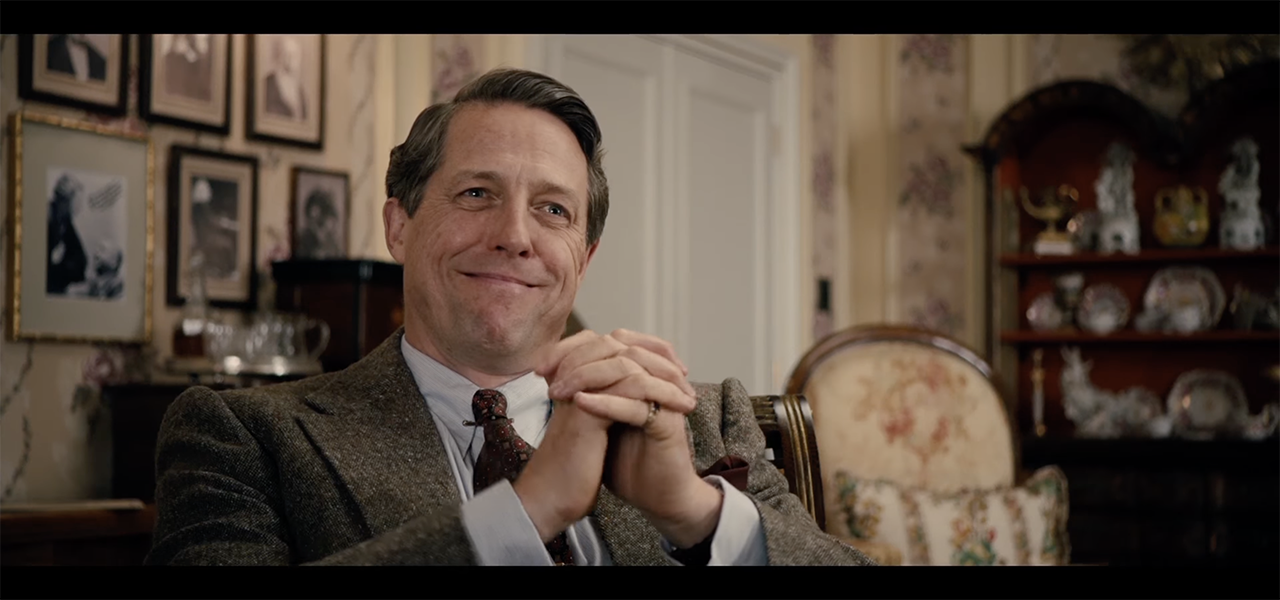 Florence Foster Jenkins, Paramount Studios
Florence Foster Jenkins, Paramount Studios
23. She Was Celibate
Unfortunately for Jenkins, she met the love of her life after contracting syphilis from her first husband. Because of her medical condition, she and Bayfield developed a purely platonic relationship. By all accounts, the two never consummated their common-law “marriage” and bonded over their love of music instead.
Although, there might have been something else—something far less romantic—keeping them together.
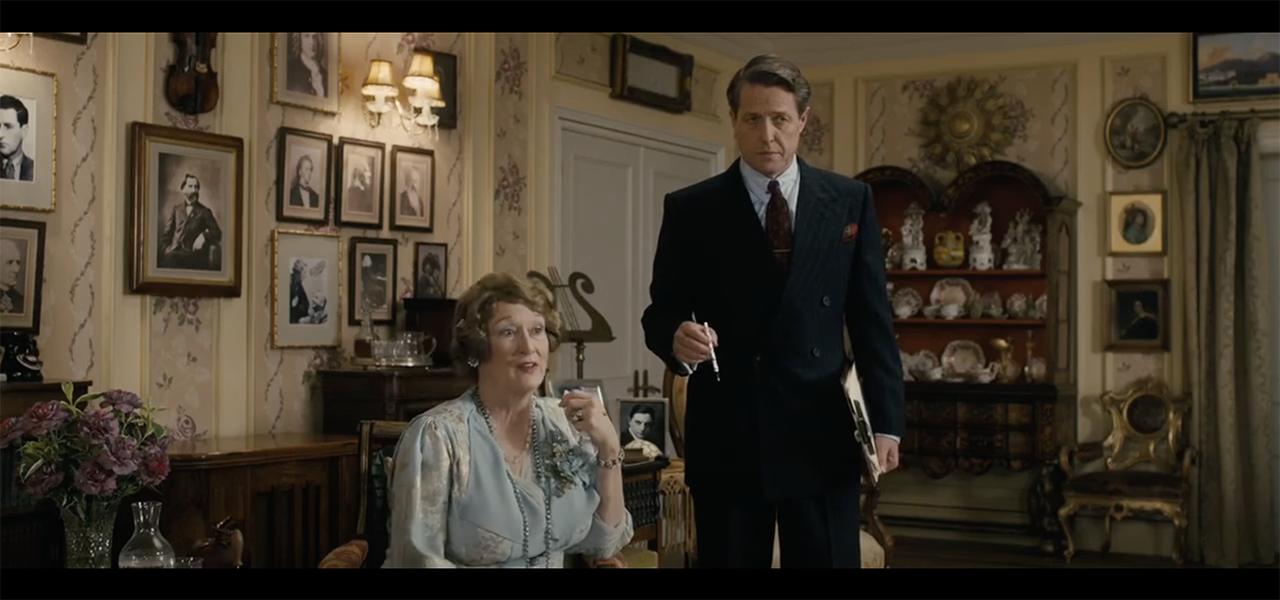 Florence Foster Jenkins, Paramount Studios
Florence Foster Jenkins, Paramount Studios
24. She Kept A Kept Man
Jenkins and Bayfield shared a profound love of music. And, possibly, money. As it turns out, Bayfield might not have been a true believer in Jenkins’ musical talents after all. Around the same time that he met her, Jenkins’ father passed on, leaving her with the majority of his massive fortune. Bayfield might have just hung around for her money.
That’s almost certainly why everyone else did.
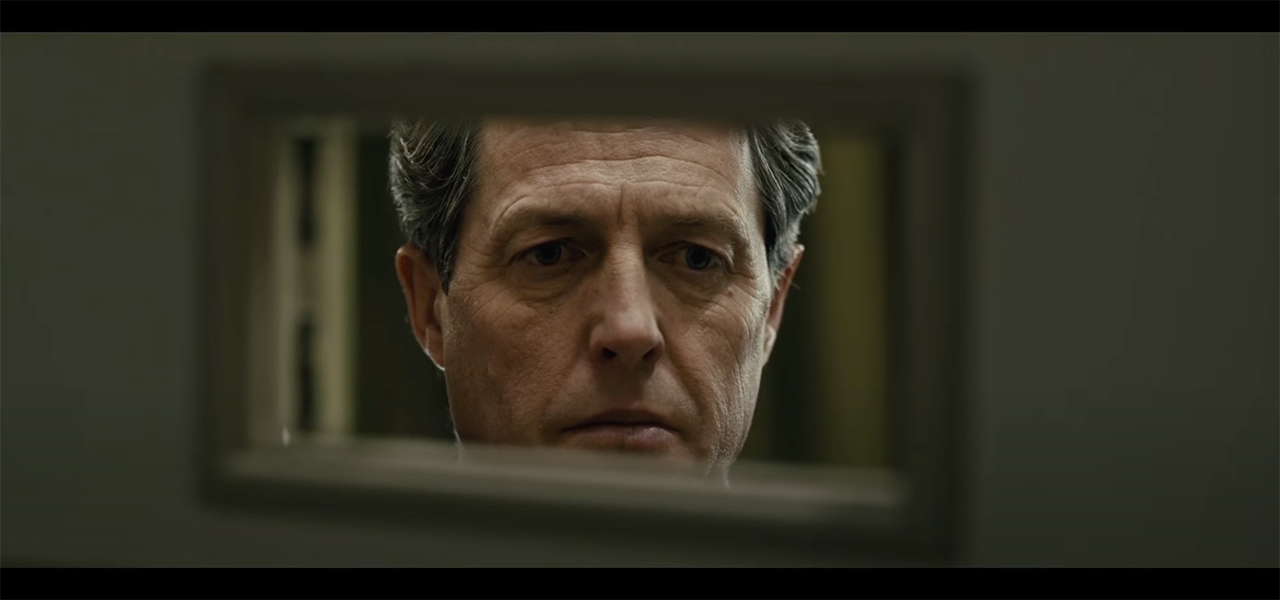 Florence Foster Jenkins, Paramount Studios
Florence Foster Jenkins, Paramount Studios
25. She Made Her Debut
With her father’s money and Bayfield’s support, Jenkins was finally free to pursue her musical career to its fullest. With Bayfield as her manager, she began taking voice lessons and joined countless social clubs in New York, immersing herself in New York’s upper crust. And she quickly developed a reputation—even if it wasn’t the best one.
26. She Bought Her Way To The Top
Jenkins didn’t exactly have talent on her side, but she did have a sizable fortune. Jenkins used her father’s money to buy her way into New York’s upper echelons and artistic circles. In short order, she became the self-appointed “chairman of music” in all of her social clubs, putting on elaborate operatic productions.
They were, shall we say, memorable...
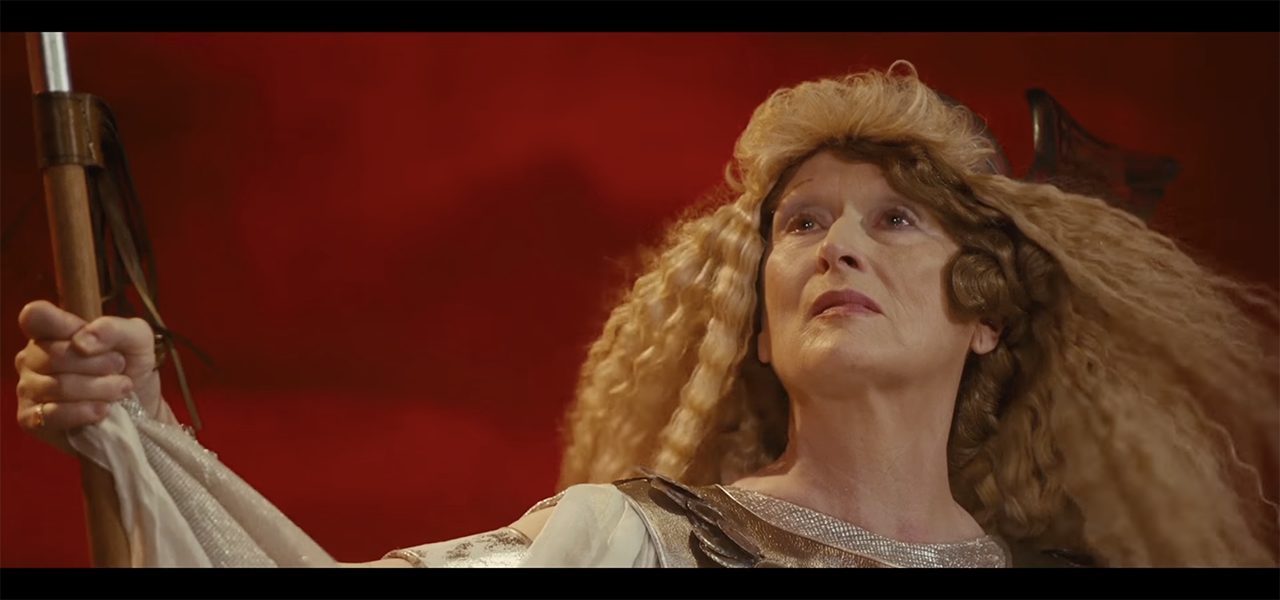 Florence Foster Jenkins, Paramount Studios
Florence Foster Jenkins, Paramount Studios
27. She Started The Verdi (Vanity) Club
Pretty soon, Jenkins became bored with serving as a producer. She wanted the spotlight for herself. So, in 1919, she founded the Verdi Club with the stated purpose to foster “a love and patronage of Grand Opera in English”. In reality, however, its purpose was her own self-aggrandizement. Or self-delusion, as it would turn out.
28. Her Fan Club Grew
As the founder (and benefactor) of her own club, Jenkins gave herself the fancy title of “President Soprano Hostess Jenkins”. She then proceeded to swell the ranks of the Verdi Club to over 400 members. Finally, after decades of waiting, the curtain was about to rise on her much-anticipated musical career. And she was going to be a star.
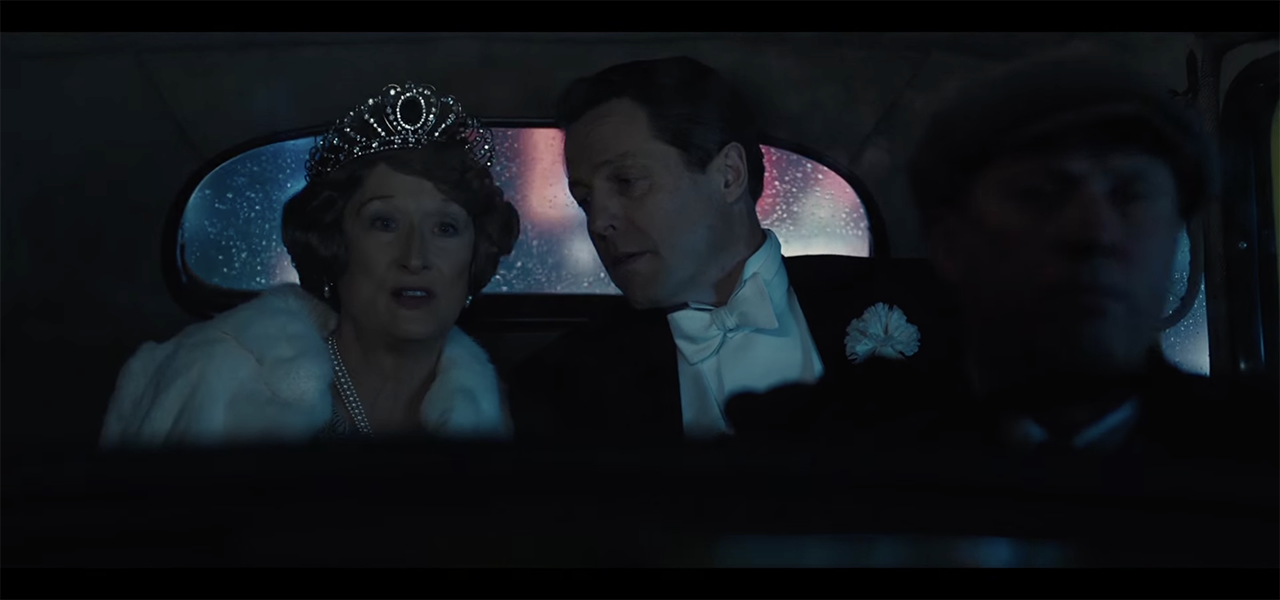 Florence Foster Jenkins, Paramount Studios
Florence Foster Jenkins, Paramount Studios
29. She Put On Lavish Recitals
With her new club up and running, Jenkins was finally ready to make her debut. She began renting out the ballroom of the Ritz-Carlton and putting on ostentatious private recitals and tableaux vivants. With her numerous costume changes and expensive sets, Jenkins’ recitals became the talk of the town. And soon everyone wanted a front-row seat.
30. Her Voice Spoke For Itself
Even though Jenkins’ early recitals with the Verdi Club were private affairs, her voice garnered the attention of the general public. For all of the wrong reasons. When attempting to hit high notes, for example, Jenkins would contract her vocal chords so tightly that no sound would come out. But, awkwardly, she would still be mouthing the words.
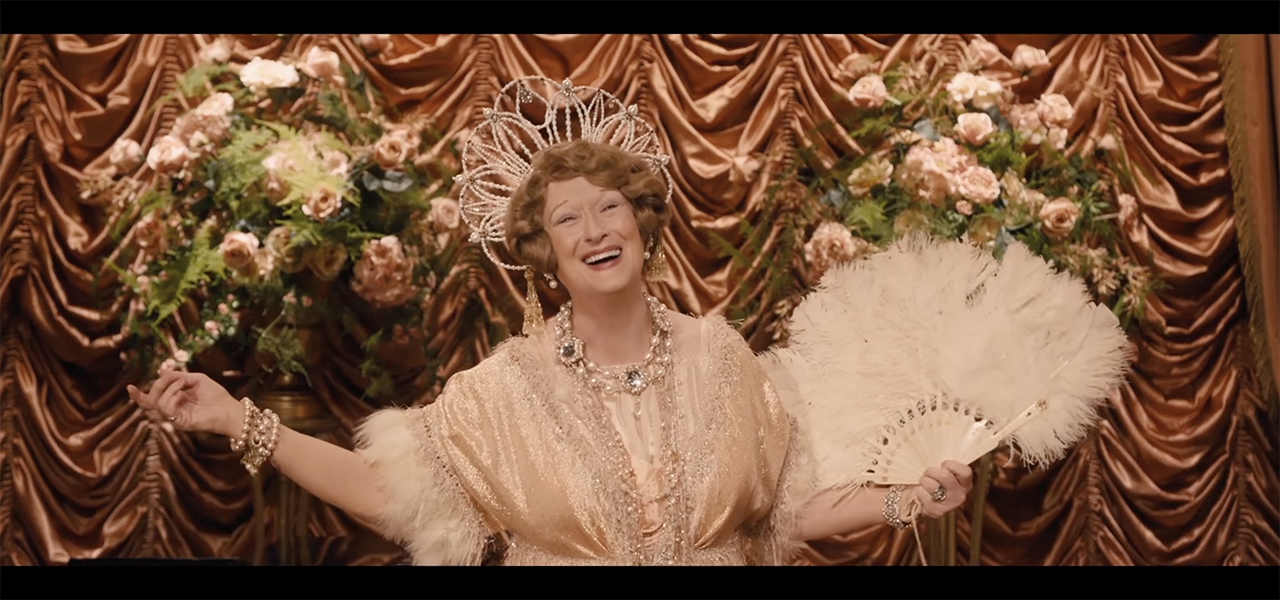 Florence Foster Jenkins, Paramount Studios
Florence Foster Jenkins, Paramount Studios
31. She Was Cacophonous
Jenkins’ recitals left her audiences breathless with laughter and speechless for words. One critic who managed to hear Jenkins sing described her recital as a “cacophony of squawks and screeches”. He went on to describe her arias as having breathless “careening arcs” that “come clucking wildly, frantically down again”.
But if money couldn’t buy talent, it could buy adoring fans.
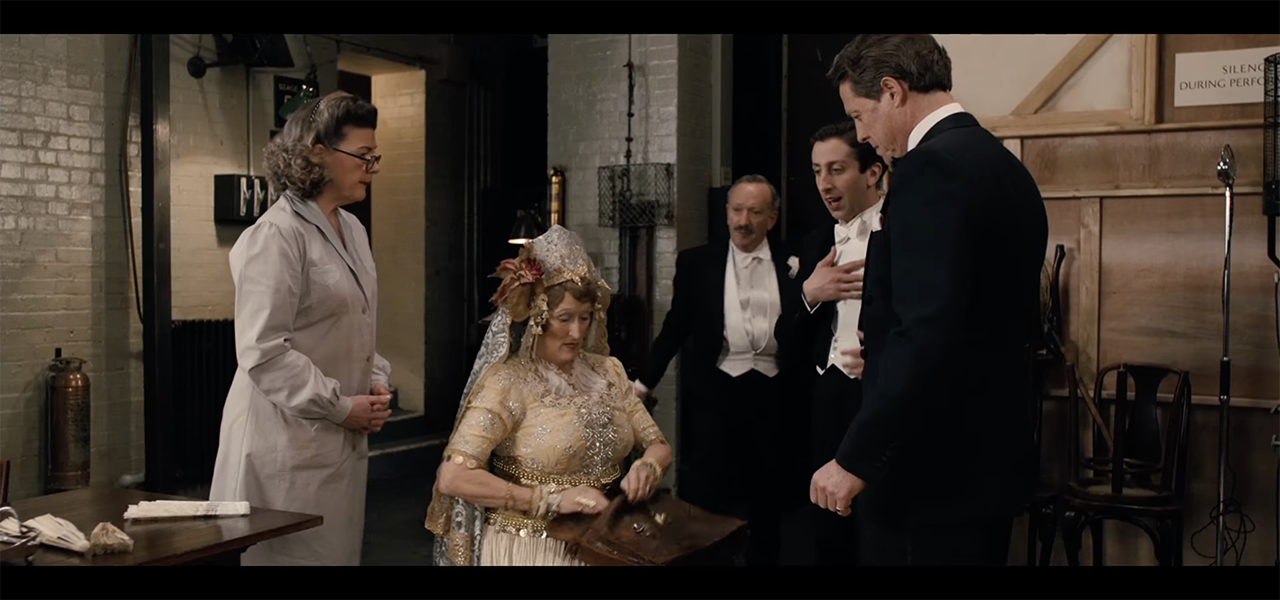 Florence Foster Jenkins, Paramount Studios
Florence Foster Jenkins, Paramount Studios
32. She Was Kept In The Dark
How Jenkins didn’t know that she couldn’t sing is something of a mystery. But those around her did their best to shield her from the truth, likely so that she would continue to patronize the arts. As one source speculated, no serious critics ever gained access to her private recitals. In fact, those in her inner circle went out of their way to ensure only good things were written about her.
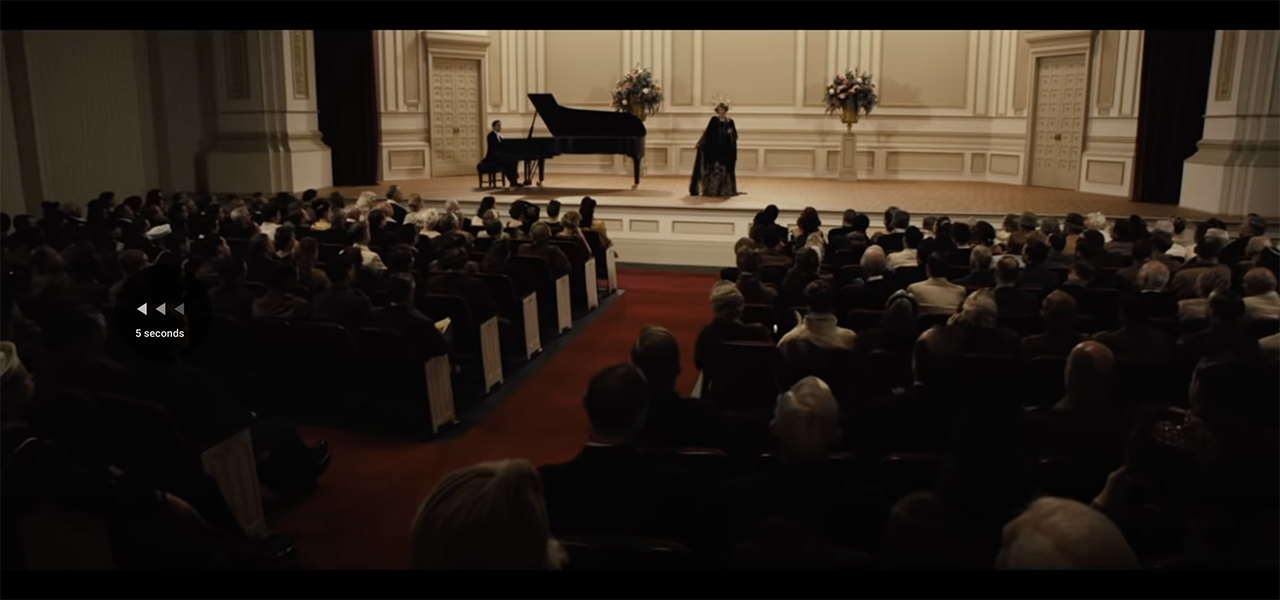 Florence Foster Jenkins, Paramount Studios
Florence Foster Jenkins, Paramount Studios
33. She Wrote Her Own Reviews
Because no real music critics ever gained access to Jenkins’ private recitals with the Verdi Club, she was free to spin the events however she wanted. Some sources believed that the reviews written at the time had been “penned by the singer's friends or Jenkins herself”. She probably had no idea that she was a running joke.
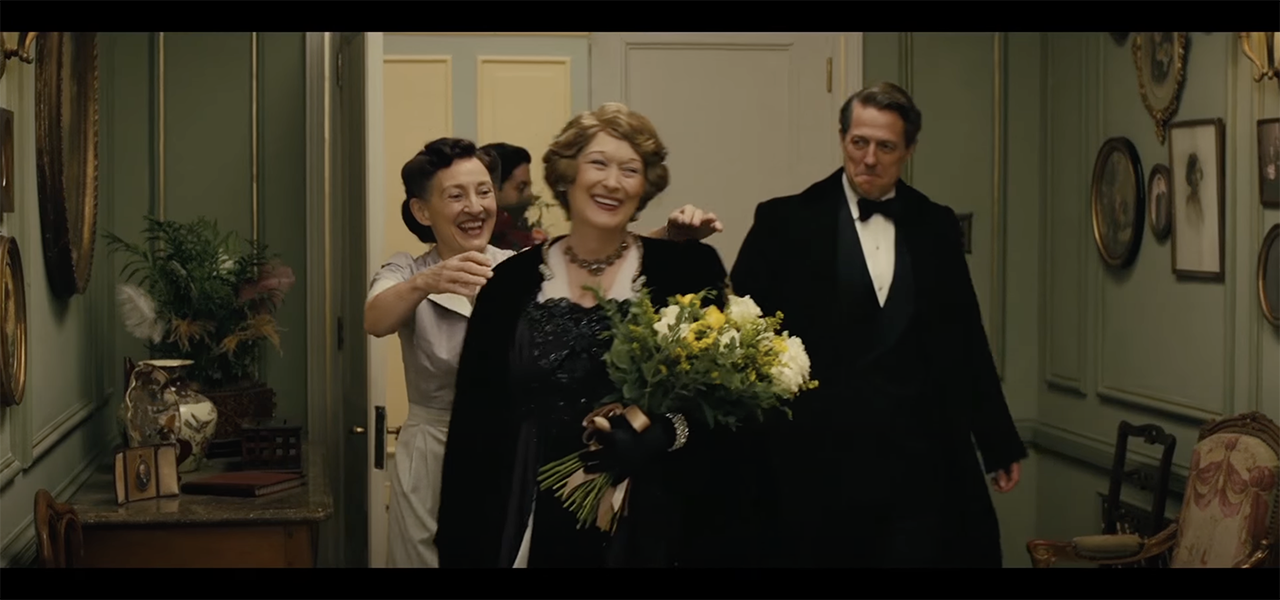 Florence Foster Jenkins, Paramount Studios
Florence Foster Jenkins, Paramount Studios
34. She Only Sold Tickets To Music Lovers
Jenkins was likely able to remain in the dark because she and Bayfield carefully guarded the guest list. Whenever she was selling tickets to her recitals, Jenkins invited buyers to a rented suite in a hotel so she could interview them personally. Anyone who wasn’t a “genuine” fan of opera, was denied the coveted $2.50 ticket.
Of course, some con artists managed to get through and sold scalped tickets for a hefty profit to the most entertaining show in town.
 Florence Foster Jenkins, Paramount Studios
Florence Foster Jenkins, Paramount Studios
35. Her Audience Cloaked Their Laughter In Applause
Jenkins’ long-time pianist described the whole charade in a 1970s interview. He claimed that the audience, “not wanting to hurt her feelings”, had “developed a convention”. Allegedly, whenever Jenkins “came to a particularly excruciating discord” the audience would “burst into these salvos of applause and whistles” to cover up their laughter.
But even that wasn’t always enough.
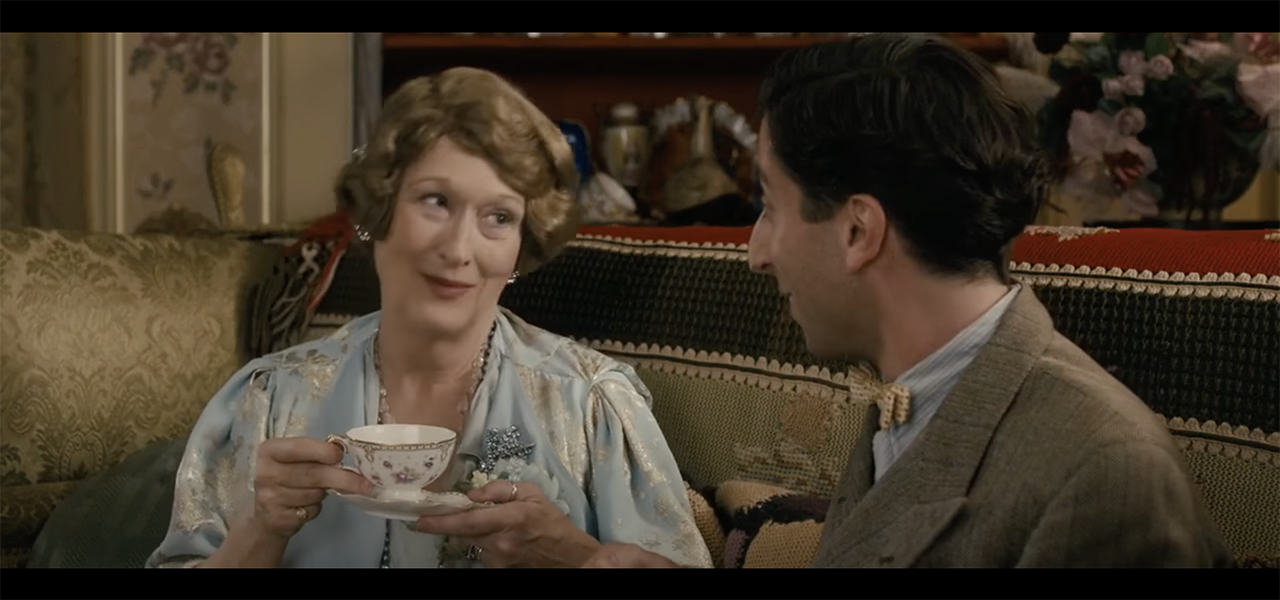 Florence Foster Jenkins, Paramount Studios
Florence Foster Jenkins, Paramount Studios
36. She Caused Riots
With so many people packed into her recitals, Jenkins’ concerts were barely shy of riots. In fact, some of her performances were so riotously terrible that guests had to suppress their laughter. News reports from the time tell of audience members stuffing handkerchiefs in their mouths to “muffle their guffaws”. Even respectable musicians couldn’t contain themselves.
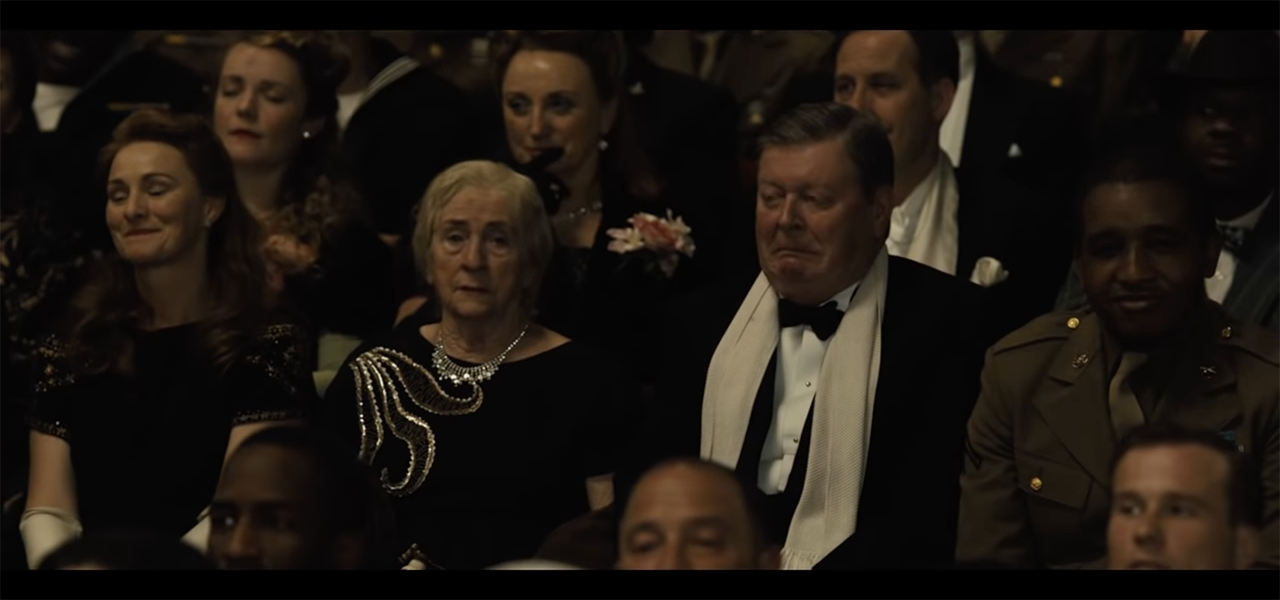 Florence Foster Jenkins, Paramount Studios
Florence Foster Jenkins, Paramount Studios
37. She Made Porter Hit Himself
One of Jenkins’ biggest fans and supporters was the music legend Cole Porter. According to some sources, Porter “rarely missed a recital”. But he probably wasn’t attending Jenkins’ recitals for the reasons she thought. Allegedly, Porter would bang his cane into his foot to keep himself from laughing too loudly at Jenkins’ shrieks and cries.
You might say there was something for everyone.
38. She Was A Costume Queen
Even for deaf audience members, Jenkins’ recitals were almost too comical to bear. Throughout her career, she became just as famous for her elaborate costumes as for her tone-deaf caterwauling. During her recitals, audiences could have expected no less than three costume changes, each one more ridiculous than the last.
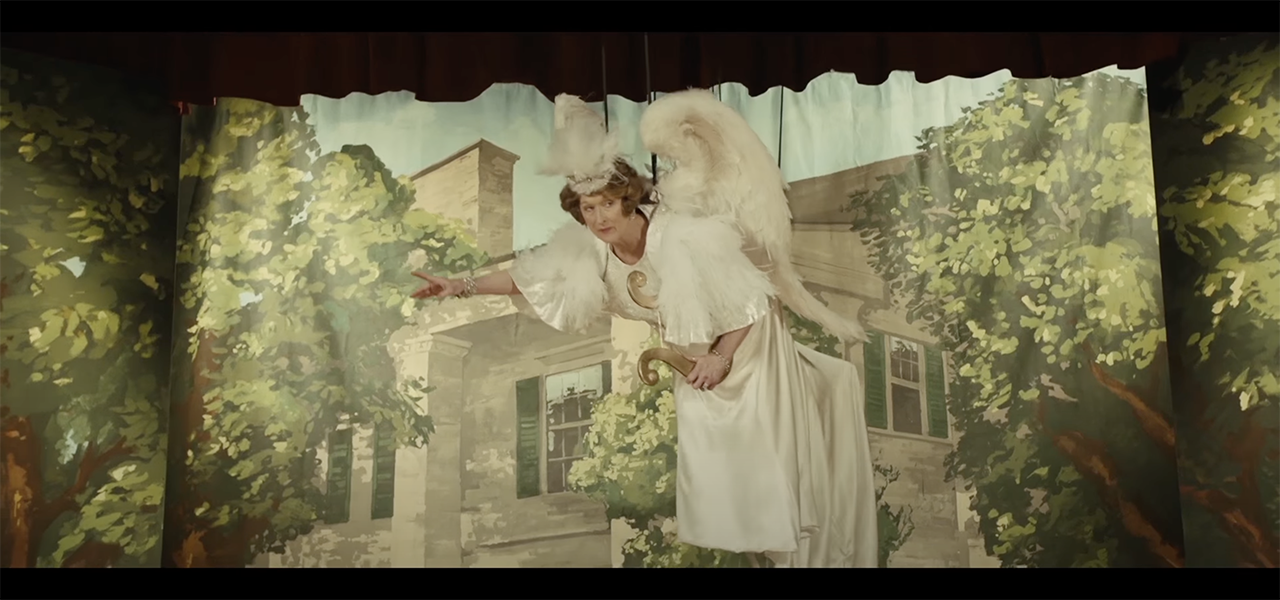 Florence Foster Jenkins, Paramount Studios
Florence Foster Jenkins, Paramount Studios
39. She Looked Like A Turkey
Of her numerous costumes, one in particular attracted roars of laughter. Perhaps her most infamous fashion faux pas was her so-called “Angel of Inspiration”. But it was more like “Turkey of Terror”. Sources described the getup as “a tulle gown and a tinsel tiara buttressed with a pair of feathered wings that made her resemble an overgrown turkey”.
40. She Was Respected
Despite the obvious lack of musical talent that she displayed throughout her career, Jenkins wasn’t without her adoring admirers. In fact, some of her most ardent supporters were the highly-respected virtuosos of classical opera. The legendary tenor Enrico Caruso, for example, “regarded her with affection and respect”.
He probably only said that because she had made him an honorary member of her prestigious club.
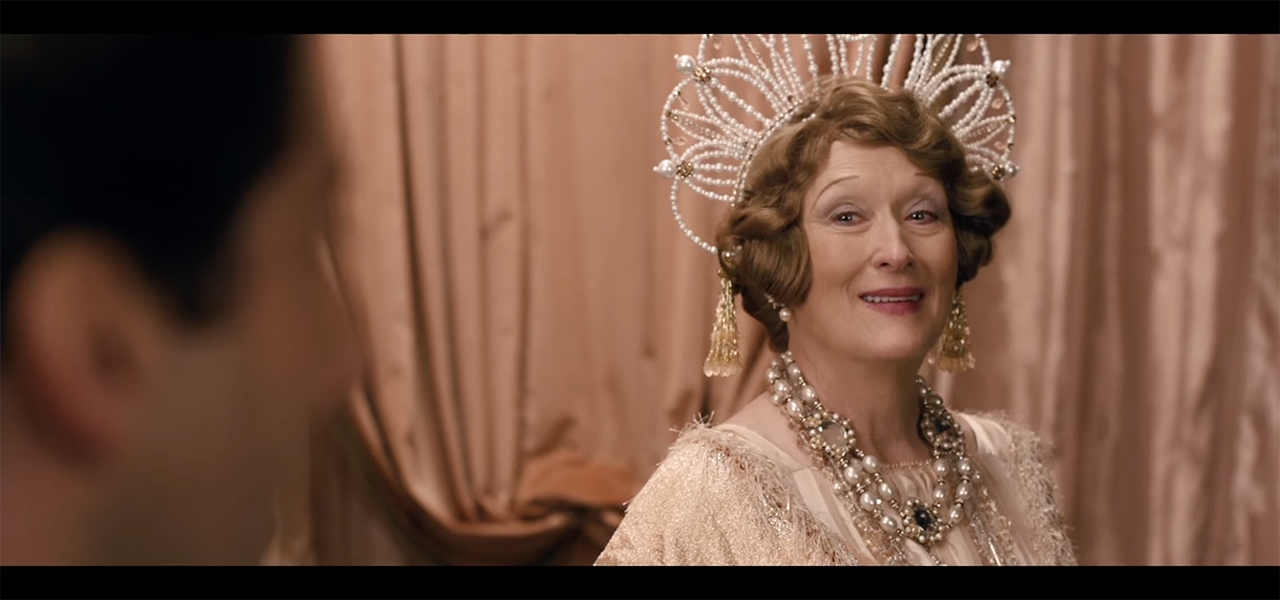 Florence Foster Jenkins, Paramount Studios
Florence Foster Jenkins, Paramount Studios
41. She Gave Herself Flowers
Normally, good performances are met with bouquets of flowers. Needless to say, even with the Verdi Club, Jenkins’ performances didn’t exactly elicit flower showers. So she gave herself flowers. During her recitals at the Ritz-Carlton, Jenkins blanketed the stage and the crowd alike in blossoms. Then she threw in the kitchen sink.
42. She Threw Castanets Into The Crowd
Jenkins’ recitals were more comedy shows than high art performances. Whenever she ran out of flowers to throw into the crowd, Jenkins improvised. It wasn’t totally unexpected for her to throw the basket that had been carrying the flowers into the crowd. And when she was done with that, she would throw her castanets or anything else she had handy.
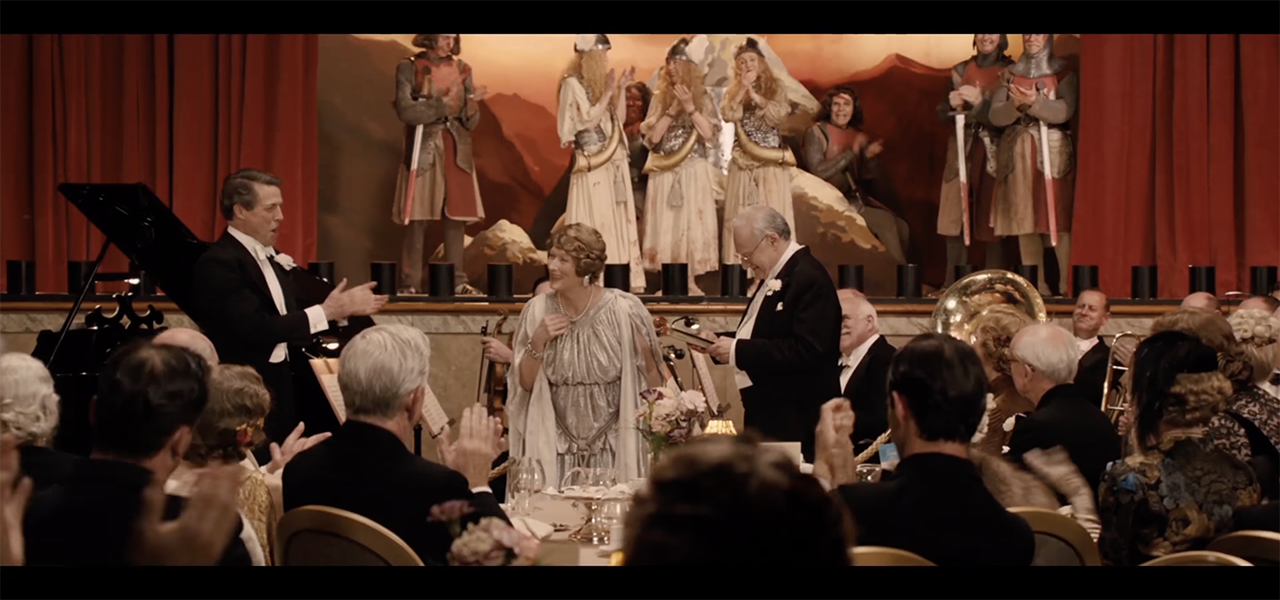 Florence Foster Jenkins, Paramount Studios
Florence Foster Jenkins, Paramount Studios
43. Her Voice Was An Accident
Despite her own beliefs, Jenkins’ upper register was almost certainly non-existent. Perhaps only bats could have heard it. But she was convinced that her upper register was, in fact, a miracle—even if only an accidental one. After surviving a car accident in 1943, Jenkins claimed that she “could sing a higher note than before”.
 Florence Foster Jenkins, Paramount Studios
Florence Foster Jenkins, Paramount Studios
44. She Was A Big Tipper
Jenkins took vocal lessons throughout her career to improve her (as she might have said) already “remarkable” voice. But she was probably more grateful to her cab driver for “accidentally” improving her vocal range than she was to her voice coach. As a thank you for his unintentional musical instruction, Jenkins gifted the cab driver an expensive box of smokes.
45. She Was A Recording Artist
Modern audiences only know how utterly excruciating Jenkins’ singing really was thanks to some recordings she made in the 1940s. Believe it or not, the recordings sold out so quickly that she promptly released a double recording to follow it up. In the days before streaming, her “albums” were the only subscription that audiences needed.
46. She Made Her Listeners High
Most listeners had a harder time listening to Jenkins sing than they did listening to nails on a chalkboard. But others considered her voice to have been transcendental. One critic who reviewed her album wrote, “This record will give the listener more of a kick [than] the same amount invested ($2.50) in tequila, zubrowka, or marijuana”.
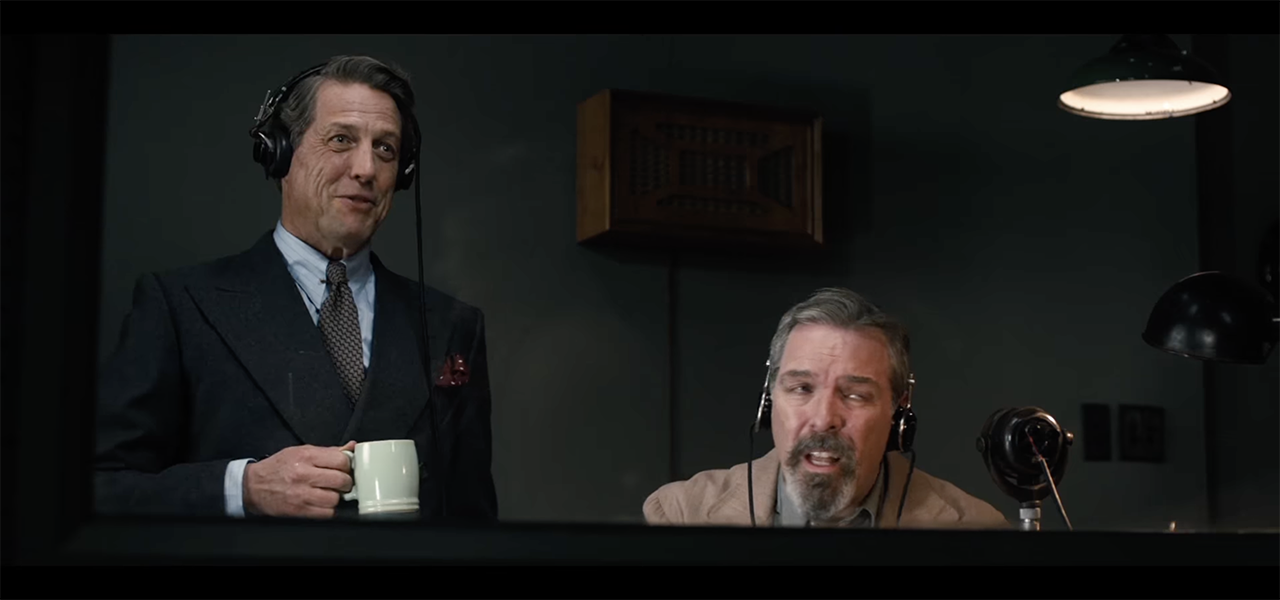 Florence Foster Jenkins, Paramount Studios
Florence Foster Jenkins, Paramount Studios
47. She Thought She Sounded Divine
With her recordings, Jenkins could finally hear herself—and suffer what her audiences had been suffering. Only, it seems that listening to the recordings only solidified Jenkins’ delusions of grandeur. And talent. Even after hearing herself sing, she insisted that she was nothing short of sublime. Better than any other soprano, even.
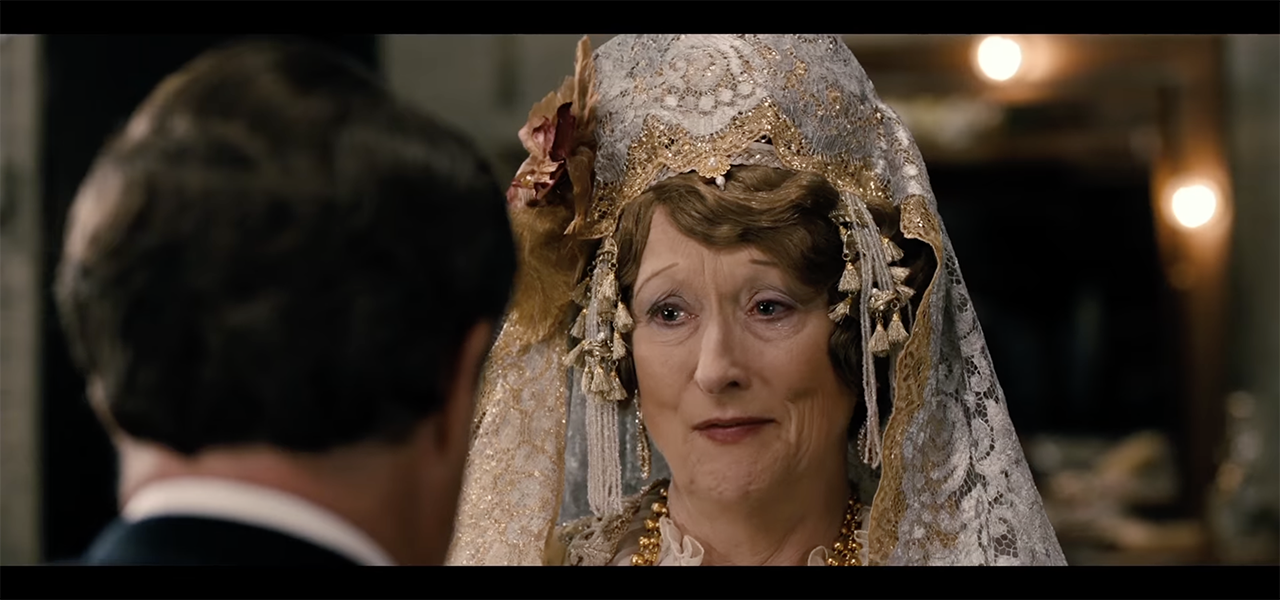 Florence Foster Jenkins, Paramount Studios
Florence Foster Jenkins, Paramount Studios
48. She Was Better Than The Best
Jenkins used to play a game with her guests where she would play three recordings of the same aria. Two of the recordings were from famous sopranos while the third would invariably be her own. If her guests failed to identify her recording as the best one, she would castigate them for “being unable to discern such vocal talent as hers”.
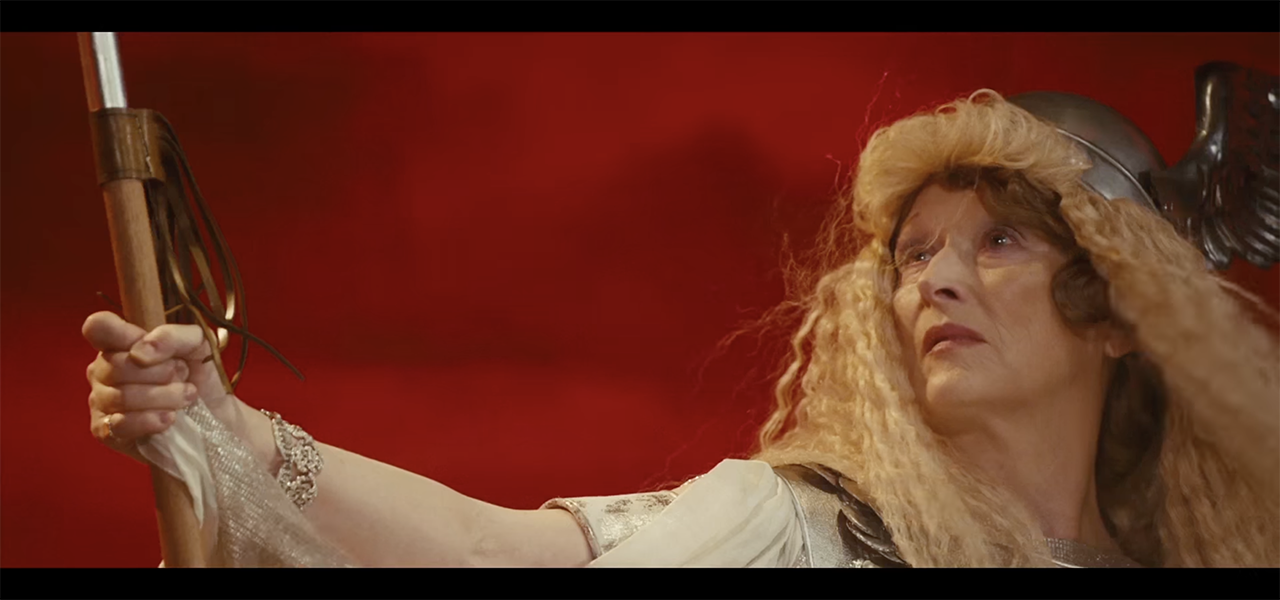 Florence Foster Jenkins, Paramount Studios
Florence Foster Jenkins, Paramount Studios
49. She Wanted To Give The Concert Of A Lifetime
With the apparent “success” of her records, Jenkins felt confident putting on the biggest show of her career. And she would open it up to the public. So, in 1944, at the ripe old age of 76, Jenkins rented out Carnegie Hall on her own dime. As one reporter put it, “smartly-dressed New Yorkers fairly fought for tickets to get in and see Florence[...]”.
It would be a night to remember.
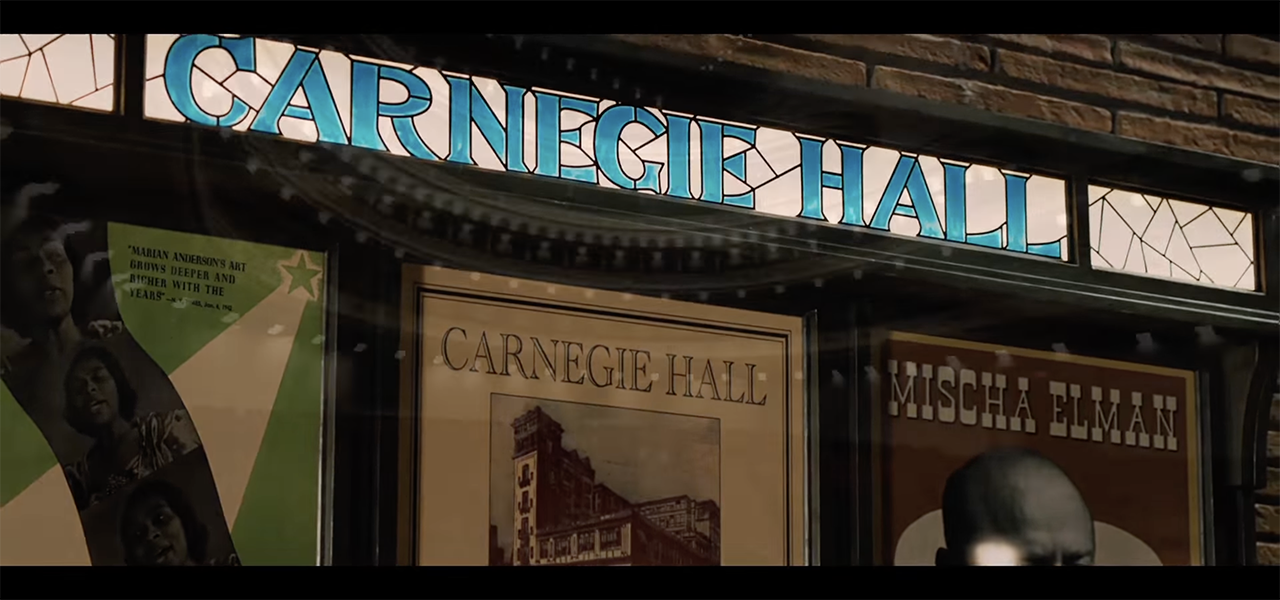 Florence Foster Jenkins, Paramount Studios
Florence Foster Jenkins, Paramount Studios
50. She Had Bankhead In Stitches
Sadly, there’s no recording of Jenkins’ Carnegie Hall concert so we’ll never know how she sounded on that night. But, from the crowd’s reaction, we can surmise that it was a particularly memorable performance. Legend has it that ushers had to practically drag the Hollywood actress Tallulah Bankhead out of Carnegie Hall for her “disorderly conduct” from laughing so hard.
The jig, at last, was up.
51. She Left Her Mark In The Musical Annals Of New York
Jenkins’ Carnegie Hall concert was her first and only public recital. There was no way to contain the public’s response. Music critic Robert Bagan of the New York World-Telegram called it “a night of nights in the musical annals of this fair city”. Other music critics, however, were far less euphemistic in their reviews.
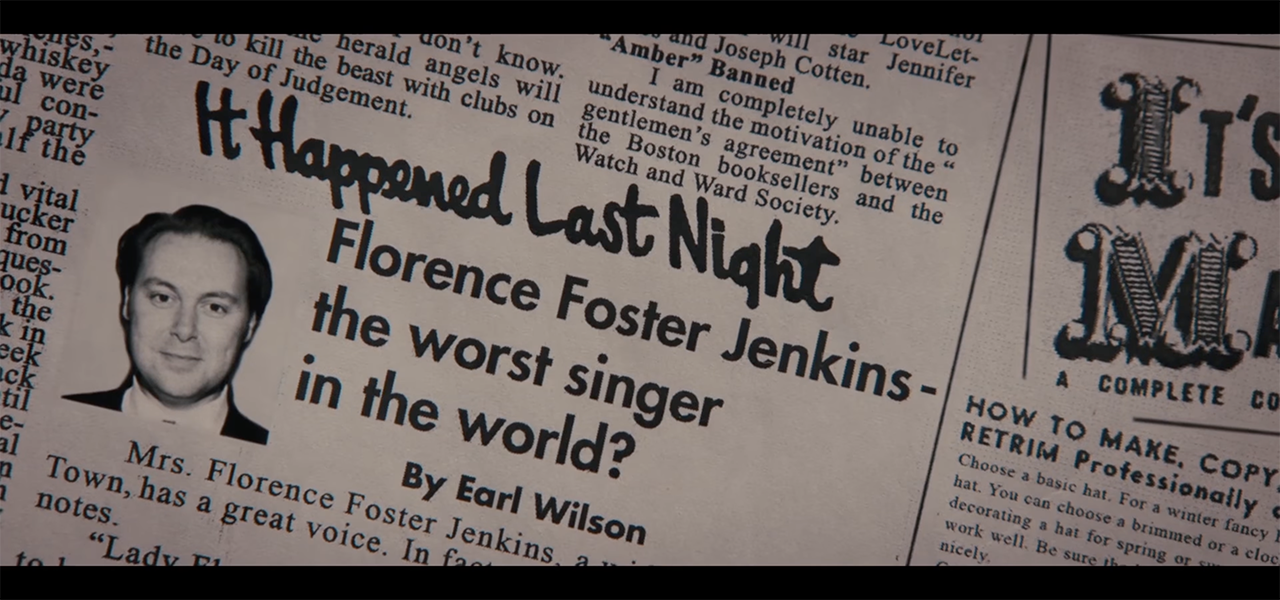 Florence Foster Jenkins, Paramount Studios
Florence Foster Jenkins, Paramount Studios
52. She Could Sing “Anything But Notes”
Not all reviewers were so eager to keep the joke going. They were a lot less gentle and vague in summarizing Jenkins’ performance. Earl Wilson, writing for the Post, called her Carnegie Hall performance “one of the weirdest mass jokes New York has ever seen”. He even went on to say, “She can sing anything but notes”.
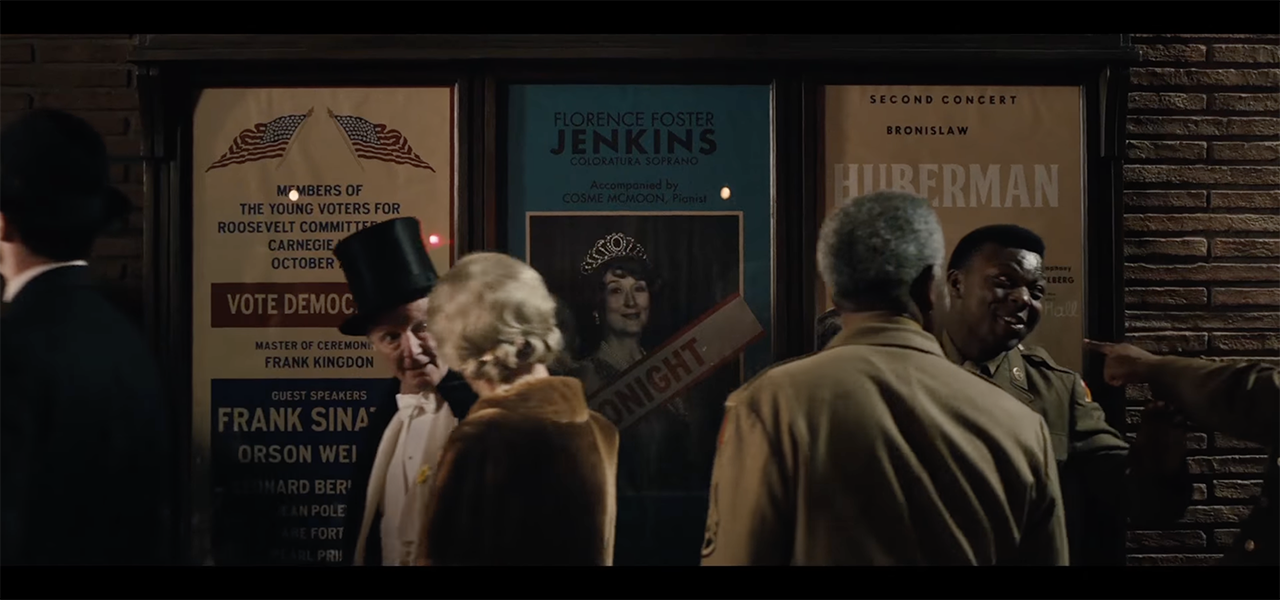 Florence Foster Jenkins, Paramount Studios
Florence Foster Jenkins, Paramount Studios
53. She Had To Face The Music
Throughout most of her life, Jenkins had always had someone to protect her delusions. But her Carnegie Hall recital had been too big to contain. It was finally time for her to face the music. The off-key, tone-deaf squalling music. When she read the reviews, it totally shattered her delusions and her health took an immediate turn for the worse.
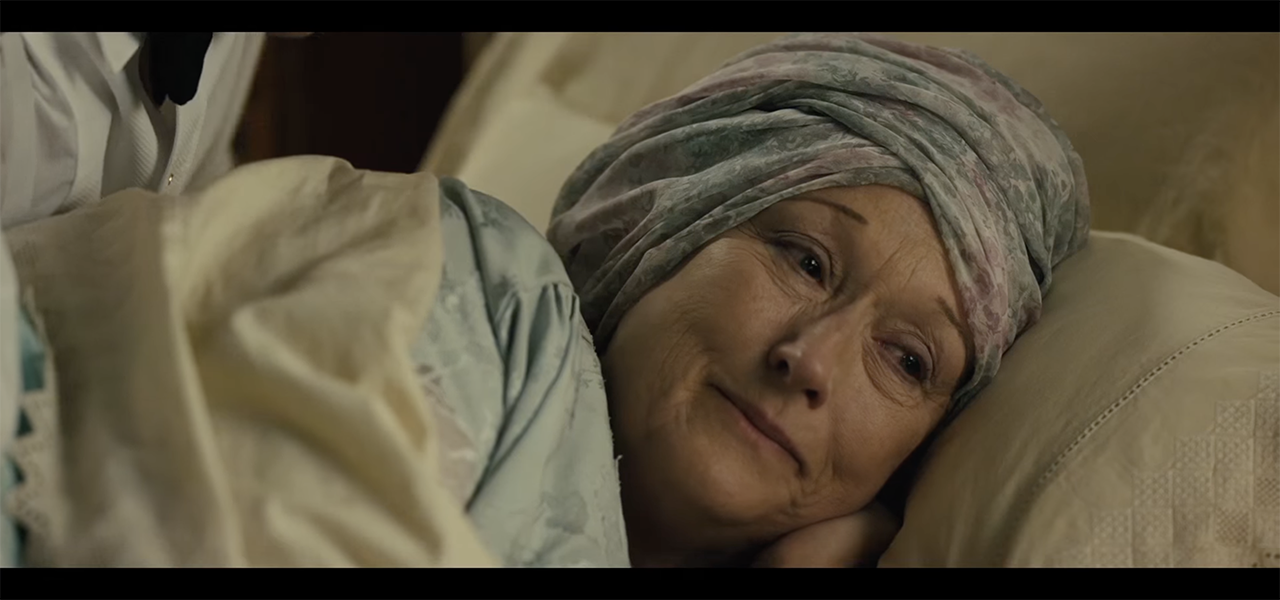 Florence Foster Jenkins, Paramount Studios
Florence Foster Jenkins, Paramount Studios
54. She Sang Her Swan Song
Just five days after what she thought had been her triumphal performance at Carnegie Hall, Jenkins suffered a fatal blow. Turns out, she couldn’t handle the truth. After reading the less-than-favorable reviews of her recital, Jenkins suffered a heart attack and, one short month later, passed on. Sadly, it seems like Jenkins didn’t get the joke.
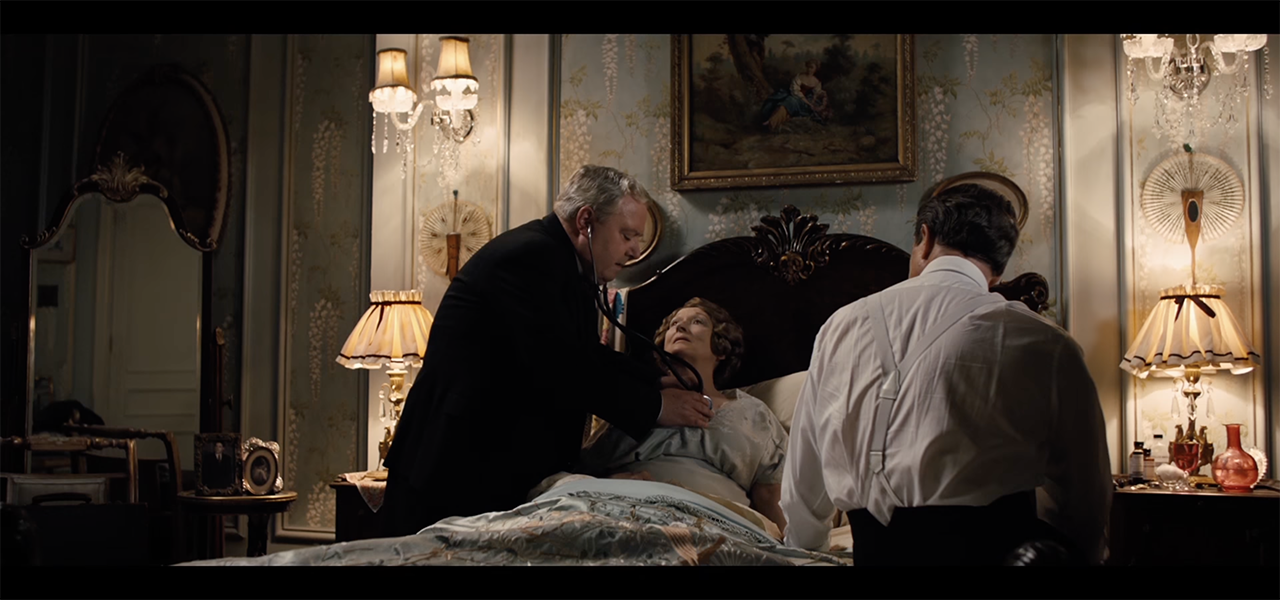 Florence Foster Jenkins, Paramount Studios
Florence Foster Jenkins, Paramount Studios
55. She Did Sing After All
In her final days, Jenkins struggled to grapple with the reality that all of her standing ovations and adoring applause had been one big joke. One big joke at her expense. But she made sure to have the last laugh. “People may say I can’t sing,” she firmly declared from her deathbed, “but no one can ever say I didn’t sing”.
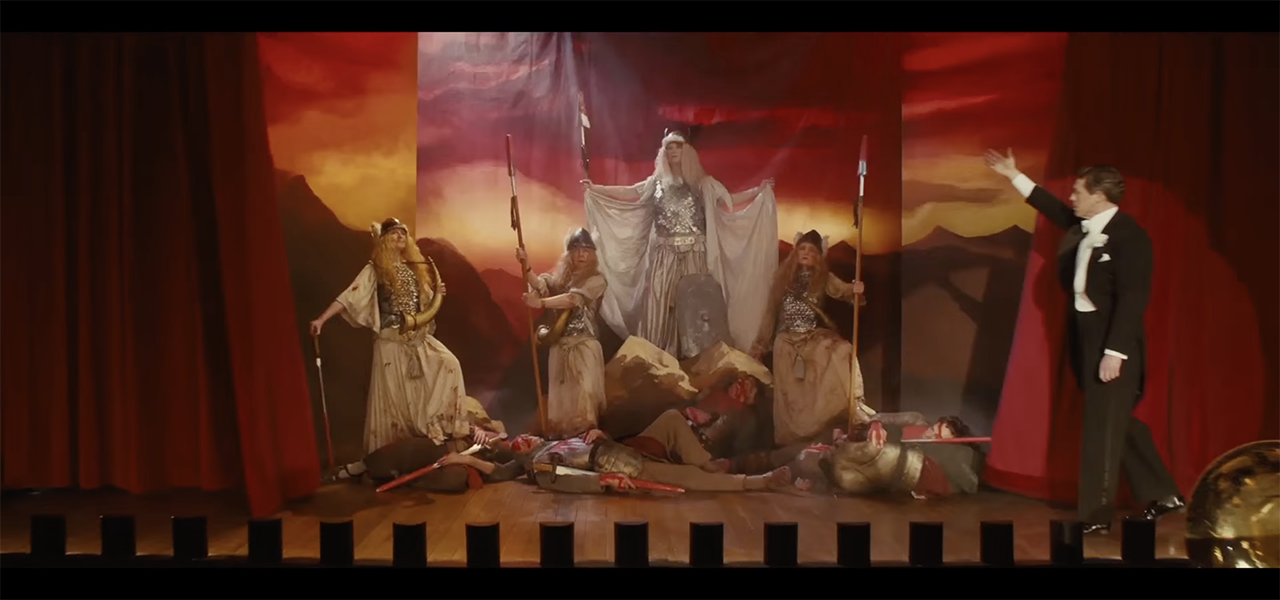 Florence Foster Jenkins, Paramount Studios
Florence Foster Jenkins, Paramount Studios


